

The Importance of Accuracy in Writing and How to Achieve It

Accuracy in writing examples is critical to effectively communicating with your target audience, increasing readability, and building credibility and professionalism. In this blog, we’ll explore what accuracy means in writing examples and how it can be improved, as well as explore differences between research objectives and goals. Let’s delve deeper into the world of accuracy!

Understanding Accuracy in Writing
What exactly does accuracy in writing mean? Accuracy refers to correct language usage, such as grammar, punctuation, spelling, and vocabulary usage. To put this definition into perspective:
Accuracy Score – A qualitative measurement of written content precision –
Predictive accuracy – Refers to the potential reliability of a writer’s performance.
Assessment- Refers to evaluating written material for accuracy.
Statistical analysis- This is the practice of studying data sets to detect patterns and trends in writing quality
The Benefits of Accurate Writing
Writing with accuracy brings several advantages:
- Clear Communication: With accurate writing comes easier communication between the parties involved.
- Enhanced Professional Image: Quality content reflects positively upon an individual or company.
- User Engagement: Readers are likelier to engage with easy-to-read, accurate content.
- Improved SEO: Search engines rank accurate, well-written articles higher in their search results pages.
Accuracy is a critical feature of academic writing.
How to Improve Accuracy in Writing
Enhancing accuracy in writing requires consistent practice and meticulous attention to detail. Here are some key strategies:
– Regularly read professional materials to become familiar with proper language usage and writing styles.
– Edit and proofread your written text multiple times.
– Use digital tools like Grammarly to catch grammatical errors.
– Seek feedback from others, and work on areas where improvement is necessary.
On a lighter note, have you ever been in this situation ??

Credit: NIST ( https://www.nist.gov/image/accuracy-meme )
Aims vs. Objectives in Research
Understanding the difference between aims and objectives in research is another vital aspect of achieving an accurate writing style. While both terms reflect research goals, they serve unique purposes:
Aims: General statements outlining what the research hopes to achieve.
Objectives: Specific, measurable actions must be completed to attain the overall aim.
In essence, objectives are the road map that guides you toward achieving your research aims.
Examples of Accuracy in Writing
Here’s how to use ‘accuracy’ in a sentence:
- The editor pays close attention to accuracy when reviewing the writer’s work.
- Ensuring accuracy in her writing, Jane meticulously proofreads each article.
- The team’s main focus in revising the report was improving the overall accuracy of the content.
Incorporating Charts and Expert Opinions
Remember to include charts, images, screenshots, or quotes from industry experts wherever appropriate when discussing accuracy in writing. These illustrations serve to further emphasize the significance of accuracy in written discourse.
Engaging Your Audience
Accuracy in writing goes beyond mere facts and figures–it can also help engage readers by asking pertinent questions that prompt reflection or create dialogue amongst peers.
Accuracy in writing examples is crucial to communicating effectively and projecting a professional image. By learning the components of accuracy, practicing regularly, seeking feedback, and using resources for improvement, you’ll soon find yourself writing with greater precision and clarity. Make accuracy a top priority on your writing journey to increase your chances of success! Learn more with manuscriptedit.com on how to write accurately.
- X (Twitter)
Related Posts
Saffron- not just golen threads but threads of health.
Saffron contains an impressive variety of plant compounds. These act as antioxidant molecules that protect your cells against free radicals and oxidative stress. Saffron is rich in plant compounds that act as antioxidants, such as crocin, crocetin, safranal, and kaempferol. Antioxidants help protect your cells against oxidative stress. Saffron is high in antioxidants, which may […]
Tips for writing an effective Methodology section for Research Papers
The Methods part of a research article serves as a road map to the research’s core, guiding readers through the authors’ actual trip to their destination. The descriptive quality of this section may make it appear to be one of the simplest sections to write in a manuscript. However, due to its highly technical character, […]
Affordable SDF Shows Promise Against Tooth Decay
A recent study tracking over 4,000 elementary school students for four years revealed that silver diamine fluoride (SDF), an affordable cavity-fighting liquid, proves as effective as dental sealants in preventing tooth decay. This finding underscores SDF’s potential to expand access to dental care and cut costs. Tooth decay, a prevalent dental issue, can be addressed […]
Leave a Reply Cancel reply
Your email address will not be published. Required fields are marked *
Save my name, email, and website in this browser for the next time I comment.
Welcome to the new OASIS website! We have academic skills, library skills, math and statistics support, and writing resources all together in one new home.

- Walden University
- Faculty Portal
Scholarly Voice: Precision, Clarity, and Academic Expression
According to the Publication Manual of the American Psychological Association (APA, 2020), academic writing should be concise and clear, and using words frugally creates a more readable paper. APA states, “Some writers may fear that writing concisely will make their papers too short However, adding extraneous material or ‘fluff’ to make your paper longer will dilute its focus and meaning and will not improve your chances of publication or of getting a favorable grade” (p. 113). Students should aim to write clearly and concisely (see APA 7, Section 4.4) and eliminate wordiness and redundancy (see APA 7, Section 4.5).
Read the following subpages to master the skills needed to be a precise, clear, smooth, and economic writer.
Engaging Writing Video Playlist
Note that these videos were created while APA 6 was the style guide edition in use. There may be some examples of writing that have not been updated to APA 7 guidelines.
- Engaging Writing: What Does It Mean to Engage Your Reader (video transcript)
- Engaging Writing: Overview of Tools for Engaging Readers (video transcript)
- Engaging Writing: Tool 1—Syntax (video transcript)
- Engaging Writing: Tool 2—Sentence Structure (video transcript)
- Engaging Writing: Tool 3—Punctuation (video transcript)
Related Resource
Didn't find what you need? Email us at [email protected] .
- Previous Page: Scholarly Voice
- Next Page: Writing Concisely
- Office of Student Disability Services
Walden Resources
Departments.
- Academic Residencies
- Academic Skills
- Career Planning and Development
- Customer Care Team
- Field Experience
- Military Services
- Student Success Advising
- Writing Skills
Centers and Offices
- Center for Social Change
- Office of Academic Support and Instructional Services
- Office of Degree Acceleration
- Office of Research and Doctoral Services
- Office of Student Affairs
Student Resources
- Doctoral Writing Assessment
- Form & Style Review
- Quick Answers
- ScholarWorks
- SKIL Courses and Workshops
- Walden Bookstore
- Walden Catalog & Student Handbook
- Student Safety/Title IX
- Legal & Consumer Information
- Website Terms and Conditions
- Cookie Policy
- Accessibility
- Accreditation
- State Authorization
- Net Price Calculator
- Cost of Attendance
- Contact Walden
Walden University is a member of Adtalem Global Education, Inc. www.adtalem.com Walden University is certified to operate by SCHEV © 2024 Walden University LLC. All rights reserved.

How to write precisely

Above anything else, scientific writing has to be precise and accurate. But it’s not an easy task to write precisely about complex topics. Here, you will find a general strategy how you can achieve precision in your writing, and 12 concrete tips how to avoid ambiguity and increase clarity and accuracy of your scientific texts.
Scientific writing is technical in its nature, so its main property should be precision and accuracy . We need to convey our findings clearly and accurately, so that our readers — mostly our fellow researchers — can understand *exactly* what we did and found out, and what the findings mean.
However, writing precisely and without ambiguity about complex topics is not easy . We might struggle to put our thoughts on paper and to find the right words for the ideas we have in our head.
Even if we manage to come up with a text that sounds clearly and precisely to us, our readers might still perceive it as ambivalent or even incomprehensible.
So how can we overcome the difficulties and write clearly and precisely?
Strategy for precise scientific writing
In my experience, there are three main aspects to consider when you want to write precisely:
I. Think precisely -> write precisely
It’s not possible to write precisely when your mind is distracted and foggy or when your thinking about the topic is not developed enough (yet). Therefore, a first step to precise writing is clarity of your thinking .
Here I don’t mean to think abstractly, rather to utilize writing as a support for your thinking . This helps you think more clearly and precisely: to notice gaps and errors and playfully discover the precise words for your ideas.
As a writing method, I highly recommend focused freewriting , where you set a timer and write down everything that comes to your mind about a topic or question, fully focused on the content.
To develop clear thinking around a complex topic, it’s best to (free)write repeatedly on this topic. Such regular think-writing practice can be incorporated into your daily work routines in form of a lab book or research journal.
II. Revise for precision
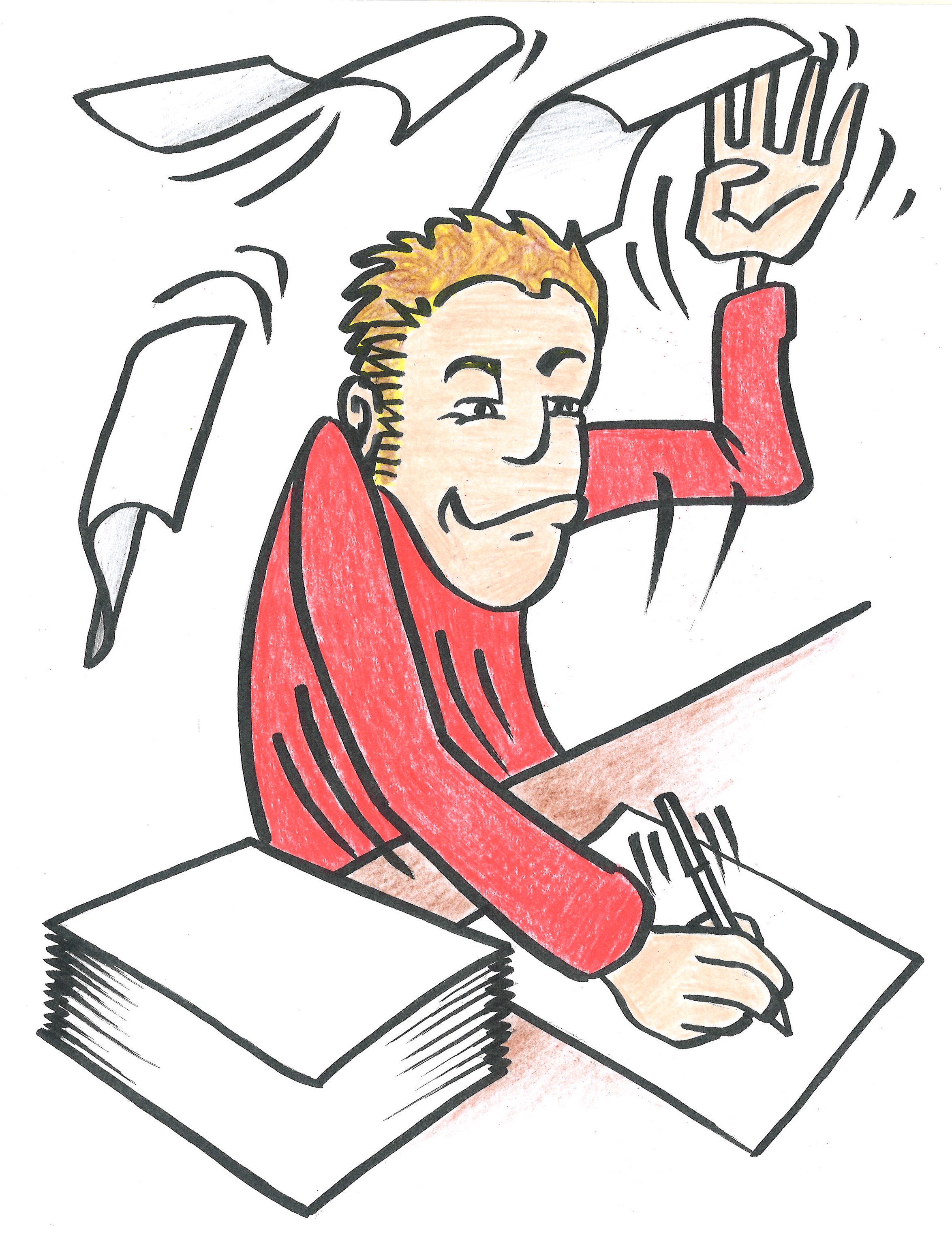
A much better strategy is to separate the processes of drafting and revising, focusing fully on the content as you draft , and improving the clarity and precision in the next steps of revision .
But even as you revise: don’t start with revising for precision! It’s best to progress from the so-called higher-order concerns (content and macrostructure) towards the lower-order concerns (language and style, including precision).
III. Utilize (peer) feedback
After several rounds of revisions you might still wonder whether your text is really clear and accurate. And even if you think that your text is written precisely, there might be still some gaps and inaccuracies.
It can be hard to catch those, because of a cognitive bias called the curse of knowledge : our brain is quick to fill those gaps and imprecisions in our writing, but our readers might not possess the necessary background knowledge to do so as well.
If you want to proceed faster with your revisions and achieve better results, ask for feedback on your text. Ideally obtain feedback from at least two persons: one that is knowledgeable about your topic (probably because they work on the same or a similar topic) and one that doesn’t know about the specifics of your topic (but they are researchers in the same or a related field).
You can find peers for reciprocal feedback in our Facebook group dedicated to academic peer feedback .
Do you need to revise & polish your manuscript or thesis but don’t know where to begin?
Get your Revision Checklist
Click here for an efficient step-by-step revision of your scientific texts.
12 tips for more clarity and accuracy in your scientific writing
So what should you watch out for when you are revising your text for precision?
During chronic infections, via some mechanism which is not yet understood completely, it is possible for a subset of IgM memory B cells in conditions of low clonal competition to trigger mature B cells to undergo cycles of affinity maturation.
During chronic infections, a subset of IgM memory B cells can trigger mature B cells to undergo cycles of affinity maturation. This happens under conditions of low clonal competition, though the mechanism is not yet completely understood.
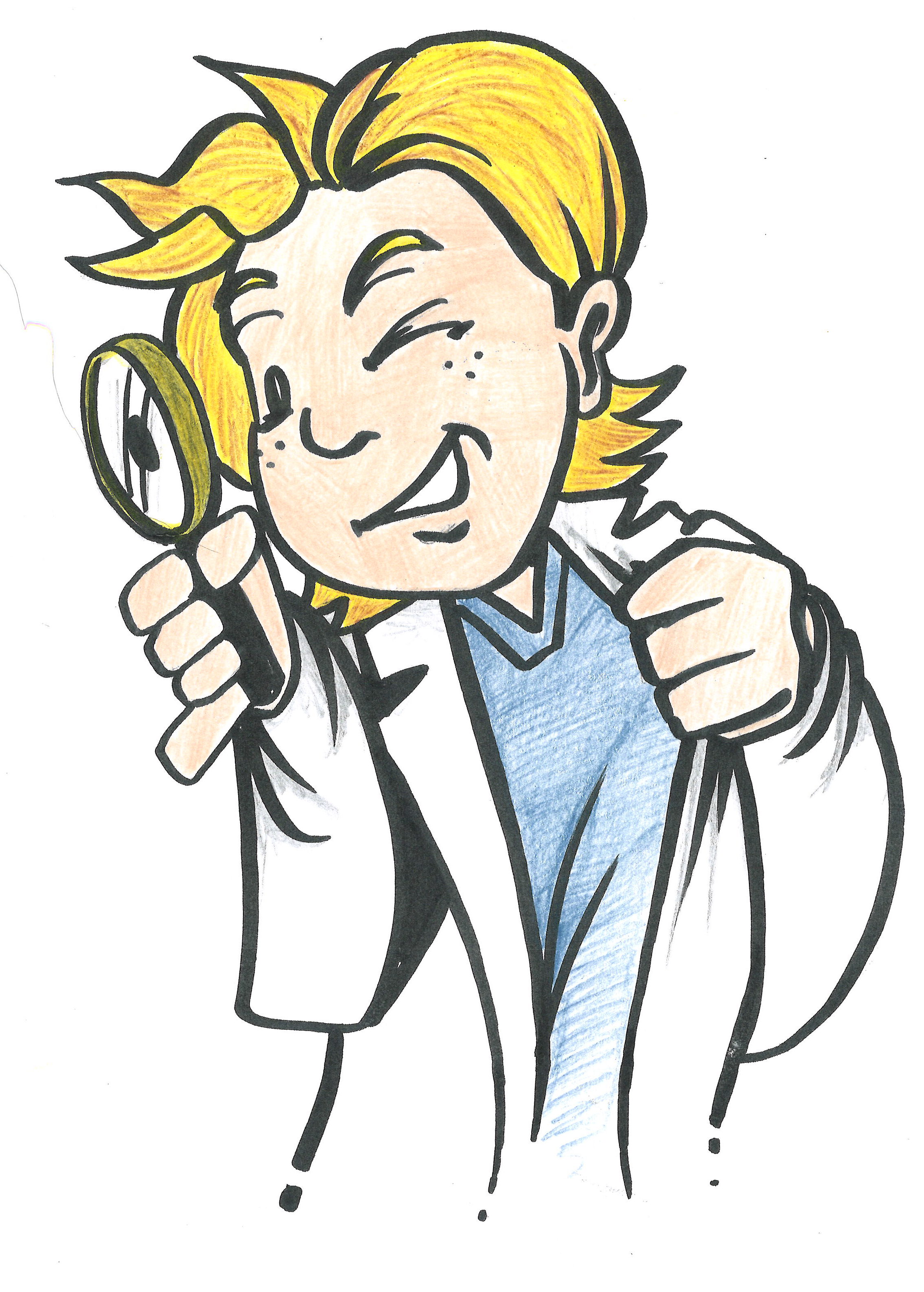
A strong correlation was found between above-ground and below-ground biomass accumulation.
We found a strong correlation between above-ground and below-ground biomass accumulation.
Dendritic spikes have also been reported in cerebellar neurons [REF]. These spikes are mediated by calcium electrogenesis and are fundamentally different from the spikes described here.
Dendritic spikes have also been reported in cerebellar neurons [REF]. However , these spikes are mediated by calcium electrogenesis and are therefore fundamentally different from the spikes described here.
Light-harvesting pigment−protein complexes (LHCs) absorb solar radiation and transfer its energy to reaction centers where it induces charge separation, thereby converting it to chemical energy.
Light-harvesting pigment−protein complexes (LHCs) absorb solar radiation and transfer this energy to reaction centers to induce charge separation, thereby converting the radiation to chemical energy.
This figure shows / indicates / demonstrates / illustrates …

It becomes increasingly recognized that numerous molecular processes inside living cells are governed by Brownian motion.
Ephaptic action potential (AP) transmission is capacitive: there is no transmembrane current flow, but the charge is redistributed on the intra- and extracellular surfaces of membranes [REFs].
It seems possible that there might exist a strain of HIV in an individual which is unreactive to all artificial antibodies available.

At least two qualitatively different spikelet types have been observed in …
In contrast, the spikelet waveform is briefer than the AP waveform .
Another example:
The compound has a boiling point similar to water.
Technically, this sentence compares incomparable: boiling point temperature and water. What we mean here, of course, is that the compound has a boiling point similar to the boiling point of water. So to be precise, it’s better to write “The compound has a boiling point similar to that of water.”
But it can get even trickier:
The probe contained more leukocytes than saliva.
The grammatically correct interpretation of this sentence would be this: The probe contained both leukocytes and saliva. The amount/volume of leukocytes in the probe was larger than the amount/volume of saliva in the probe.
Samples from DSEs un-inoculated and inoculated plant roots were stained …
Samples from plant roots inoculated and not inoculated with DSEs were stained …

One strategy suggested to reduce the seed quality loss caused by heat stress is to change the sowing date to avoid heat stress during seed development and maturation.
One strategy how to reduce the seed quality loss caused by heat stress is to change the sowing date to avoid heat stress during seed development and maturation.
These 12 tips help you revise your scientific texts for more accuracy. This will not only make your readers’ job easier, it will also increase your credibility and the impact of your research !
Do you have further ideas how to improve the precision of scientific writing? Please, share them with us in the comments!
Do you need to revise & polish your manuscript or thesis but don’t know where to begin? Is your text a mess and you don't know how to improve it?
Click here for an efficient step-by-step revision of your scientific texts. You will be guided through each step with concrete tips for execution.
4 thoughts on “ How to write precisely ”
Beautifully articulated Martina! Appreciate your writing tips. You got yourself a regular reader!
Thank you, Sarah!
Comments are closed.
Diese Webseite verwendet Cookies, um Ihnen ein besseres Nutzererlebnis zu bieten. Wenn Sie die Seite weiternutzen, stimmen Sie der Cookie-Nutzung zu.

Distinguishing features of academic writing #1: Precision
During the course of Academic Writing Month (AcWriMo) in November 2019, we explored five distinguishing features of academic writing – the first of which being precision.
What does it mean to write with academic precision? In this article, we recap the event where we sought the answer to this question. During the discussion, we also explored the importance of academic precision and the effects of word choice, active voice, redundancy, and organization on the goal of precision in our manuscripts.
What is precision and why is it important in academic writing?
Central to the discussion was the opening question, “What does it mean to write with academic precision?” An online resource from Dennis S. Berstein at The University of Michigan states, “Precision writing is a style of written communication whose primary objective is to convey information.” Chat participant, Eric Schmieder, added that “Being precise means to choose the right words for the intended purpose. To be selective in an effort to clearly convey the purpose and meaning of the writing.”
But why is it important to be precise – or to convey information through the correct choice of words – in our academic writing? The Walden University guide titled, “ Scholarly Voice: Precision, Clarity, and Academic Expression ”, indicates “Devices that are often found in creative writing—for example: setting up ambiguity, inserting the unexpected, omitting the expected, and suddenly shifting the topic, tense, or person—can confuse or disturb readers of scientific prose.”
Schmieder noted, “Precision allows readers to clearly follow your methodology and argument. It adds to credibility and perception of accuracy and validity of your claim. It also improves the likelihood that readers will understand your research and findings.” Even when writing for an informed audience, as is often the case with a thesis or dissertation, precision is important. An article by Rene Tetzner notes that being precise means that you cannot “cut corners by neglecting to provide clear explanations of the problems, hypotheses, theories, concepts, approaches, trials, terminology and the like that are used and discussed, either frequently or rarely, by academics and scientists conducting advanced research in your subject area.”
How does word choice and discipline-specific vocabulary affect academic precision?
We then considered two questions regarding how word choice affects precision in academic writing efforts: 1) How does word choice affect the goal of academic precision? and 2) How can you best incorporate discipline-specific terminology and acronyms for academic precision?
According to the Writing Center at the University of North Carolina at Chapel Hill handout on “ Word Choice ”, “In an academic argument paper, what makes the thesis and argument sophisticated are the connections presented in simple, clear language.” Schmieder added that words may have different meaning in different context, so what is simple and clear for one audience, may not be to another.
“Words convey different meanings, even ones that can pass as synonyms have different levels of formality and appropriate place for use. Understanding what word conveys the appropriate meaning for your work and audience and precisely selecting that one matters.”
An online resource from Lund University cites the use of discipline specific vocabulary as being relatively small in volume, but highly impactful on the resulting quality of manuscript. “5% of the vocabulary used in academic writing is discipline specific; however, despite the percentage being seemingly small, this type of vocabulary reflects on the quality of the text and the knowledge of the writer.”
To ensure quality and understanding, proper use of vocabulary and clarification, when necessary, is important. “Although not an exhaustive list of precise word choices, these are some of the most commonly misused words in academic writing”, according to The Chicago School of Professional Psychology .
- That v. Which
- That v. Who
- While v. Although
- Since v. Because
- Farther v. Further
- Everyday v. Every day
- Less v. Fewer
- May v. Might
An EAPFoundation.com resource notes that “in addition to general words and academic words, [readers of academic writing] will also need to learn subject-specific or ‘technical’ vocabulary.” As an academic author in a technical discipline “laden with acronyms and technical terminology”, Schmieder said during the TweetChat that he tries “to clarify any acronyms on first use and define any terms that may be ambiguous to ensure understanding in the context of [his] work.”
How can active voice improve academic precision?
With an understanding of the effect of word choice on academic precision, we explored the benefits of active voice in academic writing and how to choose words that support an active voice in our manuscripts.
According to research conducted by Thomas Sigel and published in the Journal of Management Development , passive voice weakens your scholarly argument. Specifically, Siegel notes that “by avoiding passive constructions in scholarly writing, academics can demonstrate a more thorough understanding of materials, thus strengthening arguments and presenting articles with clarity.” Additional benefits of using the active voice in academic and scientific writing were noted in another online article by Rene Tetzner.
Schmieder added support for the use of active voice, stating, “Active voice, by nature, is more direct in its meaning resulting in clearer reception from the intended audience. Therefore, the use of active voice in academic writing results in more precise communication of ideas.”
For those unfamiliar with active voice, the Walden University Writing Center guide on Active Versus Passive Voice states, “Writing in the active voice means the subject of the sentence clearly performs the action that the verb expresses.” Schmieder noted that “making word choices with active voice in mind reduces the likelihood of ambiguity or unclear communication of ideas.” A review of Rebecca K. Frels’ Research in the Schools article, “ Editorial: A Typology of Verbs for Scholarly Writing ”, can offer guidance on improving word choice for this purpose.
How can the structure of academic writing improve precision?
Our final two questions during the event focused on the structure of an academic paper as it relates to precision in academic writing. Specifically, the effect of redundancy and the organization of ideas in the manuscript.
Addressing the effect of redundancy, Schmieder noted, “Since redundancy is generally not a direct repetition of statements, but more commonly a rephrasing of ideas, it can add unintended ambiguity to the argument by incorporating less precise word choices to the same claim.” A Writing Commons article titled “ Writing Concisely and Avoiding Redundancy ” claims, “most of the time writers make the mistake of using more words than necessary to get their message across” and offers several examples of redundant phrases and overused adverbs.
Enago Academy offers five tips on avoiding redundancy:
- Emphasize with care
- Don’t say the same thing twice
- Avoid double negatives
- Be precise, not vague
- Eliminate redundant words and phrases
Finally, on the topic of organization, Monash University notes that “Writing precisely requires considerable thought and careful editing.” The writing process is just that, a process. Richard D. Morey goes as far as to state that “writing is an essential scholarly skill” in his article on “ How to write a well-structured essay ” and offers the following six step approach to doing so.
- Gather information
- Form the thesis statement
- Write the opening paragraph
- Write each supporting paragraph separately
- Write the concluding paragraph
- Read everything together
Schmieder added, “The sequence that ideas are presented in the paper improve understanding while minimizing the need for extra explanation of topics not yet covered. Reordering the delivery of content improves precision.”
Throughout the rest of the month, we continued our discussion of the five distinguishing features of academic writing looking at the other four features – complexity , formality , objectivity , and accuracy – in turn. Look for future posts from those discussions and join us on Twitter every other Friday for new TweetChat discussion topics under the hashtag #AcWriChat .
Share this:

- Share on Tumblr
Please note that all content on this site is copyrighted by the Textbook & Academic Authors Association (TAA). Individual articles may be reposted and/or printed in non-commercial publications provided you include the byline (if applicable), the entire article without alterations, and this copyright notice: “© 2024, Textbook & Academic Authors Association (TAA). Originally published on the TAA Blog, Abstrac t on [Date, Issue, Number].” A copy of the issue in which the article is reprinted, or a link to the blog or online site, should be mailed to Kim Pawlak P.O. Box 337, Cochrane, WI 54622 or Kim.Pawlak @taaonline.net.

Extended Essay: Accuracy
- Extended Essay- The Basics
- Step 1. Choose a Subject
- Step 2. Educate yourself!
- Using Brainstorming and Mind Maps
- Identify Keywords
- Do Background Reading
- Define Your Topic
- Conduct Research in a Specific Discipline
- Step 5. Draft a Research Question
- Step 6. Create a Timeline
- Find Articles
- Find Primary Sources
- Get Help from Experts
- Search Engines, Repositories, & Directories
- Databases and Websites by Subject Area
- Create an Annotated Bibliography
- Advice (and Warnings) from the IB
- Chicago Citation Syle
- MLA Works Cited & In-Text Citations
- Step 9. Set Deadlines for Yourself
- Step 10. Plan a structure for your essay
- Evaluate & Select: the CRAAP Test
- Conducting Secondary Research
- Conducting Primary Research
- Formal vs. Informal Writing
- Presentation Requirements
- Evaluating Your Work
The CRAAP Test
Accuracy: the reliability, truthfulness and correctness of the content.
- Where does the information come from?
- Is the information supported by evidence?
- Has the information been reviewed or refereed?
- Can you verify any of the information in another source or from personal knowledge?
- Does the language or tone seem unbiased and free of emotion?
- Are there spelling, grammar or typographical errors?
On this page you can learn:
Why you need to check for accuracy - and how to do it Fact-checking sites to help you evaluate information you find on the Web
Checking for Accuracy
When you are quoting data or information in your work you must be confident that the information is accurate. You need to ask:
- Is the information reliable and error-free?
- Is there an editor who verifies and/or checks the information?
Why? Because:
- Anyone can publish anything on the web!
- Unlike traditional print resources, many web resources will not have editors or fact-checkers.
- Currently, no web standards exist to ensure accuracy.
Indicators that peer-reviewed journal articles from databases like Academic OneFile , EBSCO , JSTOR , and ScienceDirect will be accurate:
- Written by college and university scholars - professors, graduate students, and post-doctoral fellows.
- Published in scholarly journals that each have there own criteria for accepting articles for publication.
- Include in-text citations and references so the information can be verified.
Fact-Checking Sites
When researching, think like a journalist: check your facts! You can use these websites to help you evaluate whether information you have found on the Internet is valid and reliable.

- << Previous: Authority
- Next: Purpose >>
- Last Updated: Sep 3, 2024 10:01 AM
- URL: https://libguides.westsoundacademy.org/ee
|
|
|
Purdue Online Writing Lab Purdue OWL® College of Liberal Arts
Welcome to the Purdue Online Writing Lab

Welcome to the Purdue OWL
This page is brought to you by the OWL at Purdue University. When printing this page, you must include the entire legal notice.
Copyright ©1995-2018 by The Writing Lab & The OWL at Purdue and Purdue University. All rights reserved. This material may not be published, reproduced, broadcast, rewritten, or redistributed without permission. Use of this site constitutes acceptance of our terms and conditions of fair use.
The Online Writing Lab (the Purdue OWL) at Purdue University houses writing resources and instructional material, and we provide these as a free service at Purdue. Students, members of the community, and users worldwide will find information to assist with many writing projects. Teachers and trainers may use this material for in-class and out-of-class instruction.
The On-Campus and Online versions of Purdue OWL assist clients in their development as writers—no matter what their skill level—with on-campus consultations, online participation, and community engagement. The Purdue OWL serves the Purdue West Lafayette and Indianapolis campuses and coordinates with local literacy initiatives. The Purdue OWL offers global support through online reference materials and services.
Message from the assistant director of content development
At the Purdue OWL, we are dedicated to supporting students, instructors, and writers through our comprehensive range of resources. We are constantly working on developing and revising these materials, keeping the users’ needs in mind.
Our team is continuously exploring possibilities for a better design, prioritizing accessibility and user experience. As the OWL undergoes these changes, we welcome your feedback and suggestions by email at any time.
Please don't hesitate to contact us via our contact page if you have any questions or comments.
Thank you for being a part of the Purdue OWL community and for helping us continue being a leading resource for writers worldwide.
Wishing you all the very best!
Kritika Sharma
Social Media
Facebook Twitter
Essay Writing: Common Grammatical and Mechanical Errors
- Essay Writing Basics
- Purdue OWL Page on Writing Your Thesis This link opens in a new window
- Paragraphs and Transitions
- How to Tell if a Website is Legitimate This link opens in a new window
- Formatting Your References Page
- Cite a Website
- Common Grammatical and Mechanical Errors
- Additional Resources
- Proofread Before You Submit Your Paper
- Structuring the 5-Paragraph Essay
Another Source
Purdue Online Writing Lab (OWL) has a list of common writing errors.
Purdue is also a great resource for citation & formatting rules.
Purdue OWL: Proofreading
Common Mistakes: Presented by the University of Minnesota
Content by the University of Minnesota's Twelve Common Errors: An Editing Checklist
Twelve Common Errors: An Editing Checklist
This list includes brief examples and explanations for you to use as reminders while you are editing your papers. If you would like to learn more, take a short writing course, set up an individual appointment at Student Writing Support, or consult a handbook for complete explanations.
1. Sentence Fragments
Make sure each word group you have punctuated as a sentence contains a grammatically complete and independent thought that can stand alone as an acceptable sentence.
Incorrect (the second sentence is the fragment): Tests of the Shroud of Turin have produced some curious findings. For example. the pollen of forty-eight plants native to Europe and the Middle East.
Revised: Tests of the Shroud of Turin have produced some curious findings. For example, the cloth contains the pollen of forty-eight plants native to Europe and the Middle East.
Incorrect: Scientists report no human deaths due to excessive caffeine consumption. Although caffeine does cause death in certain animals.
Revised: Scientists report no human deaths due to excessive caffeine consumption, although caffeine does cause death in certain animals.
2. Sentence Sprawl
Too many equally weighted phrases and clauses produce tiresome sentences.
Incorrect (There are no grammatical errors here, but the sprawling sentence does not communicate clearly and concisely.): The hearing was planned for Mon., Dec. 2, but not all of the witnesses could be available, so it was rescheduled for the following Friday, and then all the witnesses could attend.
Revised: The hearing, which had been planned for Mon., Dec. 2, was rescheduled for the following Friday so that all witnesses would be able to attend.
3. Misplaced and Dangling Modifiers
Place modifiers near the words they describe; be sure the modified words actually appear in the sentence.
Incorrect: When writing a proposal, an original task is set for research.
Revised: When writing a proposal, a scholar sets an original task for research.
Incorrect: Many tourists visit Arlington National Cemetery, where veterans and military personnel are buried every day from 9:00 a.m. until 5:00 p.m.
Revised: Every day from 9:00 a.m. until 5:00 p.m., many tourists visit Arlington National Cemetery, where veterans and military personnel are buried.
4. Faulty Parallelism
Be sure you use grammatically equal sentence elements to express two or more matching ideas or items in a series.
Incorrect: The candidate's goals include winning the election, a national health program, and the educational system.
Revised: The candidate's goals include winning the election, enacting a national health program, and improving the educational system.
5. Unclear Pronoun Reference
All pronouns must clearly refer to definite referents (nouns). Use "it," "this," "that," "these," "those," and "which" carefully to prevent confusion.
Incorrect: Einstein was a brilliant mathematician. This is how he was able to explain the universe.
Revised: Einstein, who was a brilliant mathematician, used his ability with numbers to explain the universe.
Incorrect: Because Senator Martin is less interested in the environment than in economic development, he sometimes neglects it.
Revised: Because of his interest in economic development, Senator Martin sometimes neglects the environment.
6. Incorrect Pronoun Case
Determine whether the pronoun is being used as a subject, an object, or a possessive in the sentence, and select the pronoun form to match.
Incorrect: Castro's communist principles inevitably led to an ideological conflict between he and President Kennedy.
Revised: Castro's communist principles inevitably led to an ideological conflict between him and President Kennedy.
Incorrect: Since strict constructionists recommend fidelity to the Constitution as written, no one objects more than them to judicial reinterpretation.
Revised: Since strict constructionists recommend fidelity to the Constitution as written, no one objects more than they [object] to judicial reinterpretation.
7. Omitted Commas
Use commas to signal nonrestrictive or nonessential material, to prevent confusion, and to indicate relationships among ideas and sentence parts.
Incorrect: When it comes to eating people differ in their tastes.-- (eww!)
Revised: When it comes to eating , people differ in their tastes.
Incorrect: The Huns who were Mongolian invaded Gaul in 451.
Revised: The Huns, who were Mongolian, invaded Gaul in 451.
8. Superfluous Commas
Unnecessary commas make sentences difficult to read.
Incorrect: Field trips are required, in several courses, such as, botany and geology.
Revised: Field trips are required in several courses, such as botany and geology.
Incorrect: The term "scientific illiteracy," has become almost a cliché in educational circles.
Revised: The term "scientific illiteracy" has become almost a cliché in educational circles.
9. Comma Splices
Do not link two independent clauses with a comma (unless you also use a coordinating conjunction: "and," "or," "but,"' "nor," "so," "yet"). Instead, use a period or semicolon, or rewrite the sentence.
Incorrect: In 1952, Japan's GNP was one third that of France, by the late 1970s, it was larger than the GNPs of France and Britain combined.
Revised: In 1952, Japan's GNP was one third that of France. By the late 1970s, it was larger than the GNPs of France and Britain combined.
Incorrect: Diseased coronary arteries are often surgically bypassed, however half of all bypass grafts fail within ten years.
Revised: Diseased coronary arteries are often surgically bypassed; however, half of all bypass grafts fail within ten years.
10. Apostrophe Errors
Apostrophes indicate possession for nouns ("Jim's hat," "several years' work") but not for personal pronouns ( "its," "your," "their," and "whose"). Apostrophes also indicate omissions in contractions ("it's" = "it is"). In general they are not used to indicate plurals.
Incorrect: In the current conflict its uncertain who's borders their contesting.
Revised: In the current conflict, it is [it's] uncertain whose borders they are [they're] contesting.
Incorrect: The Aztecs' ritual's of renewal increased in frequency over the course of time.
Revised: The Aztecs' rituals of renewal increased in frequency over the course of time.
11. Words Easily Confused
"Effect" is most often a noun (the effect), and "affect" is almost always a verb. Other pairs commonly confused: "lead"/ "led" and "accept"/ "except." Check a glossary of usage to find the right choice.
Incorrect: The recession had a negative affect on sales.
Revised: The recession had a negative effect on sales. (or) The recession affected sales negatively.
Incorrect: The laboratory instructor choose not to offer detailed advise.
Revised: The laboratory instructor chose not to offer detailed advice.
12. Misspellings
Spelling errors are usually perceived as a reflection of the writer's careless attitude toward the whole project. Do not allow your hard work to be marred in this way! In addition to comprehensive dictionaries, you may want to use electronic spell-checkers, spelling dictionaries, and lists of frequently misspelled words found in handbooks.
All Content by the University of Minnesota's Twelve Common Errors: An Editing Checklist
A Monroe College Research Guide
THIS RESEARCH OR "LIBGUIDE" WAS PRODUCED BY THE LIBRARIANS OF MONROE COLLEGE
- << Previous: Cite a Website
- Next: Plagiarism >>
- Last Updated: Jul 18, 2024 3:06 PM
- URL: https://monroecollege.libguides.com/essaywriting
- Research Guides |
- Databases |
Accuracy in Professional writing
The challenge in professional writing is explaining complex technical concepts in an easy understandable manner, with accuracy. How can accuracy be maintained while avoiding jargon, equations and formulae? Writing to popularize a scientific or technical matter is thus always a struggle for any writer as there is a looming trepidation of trivializing the findings or providing false hypothesis or vague allusions. There is also a danger of writing as a technical expert which a layman cannot understand discouraging him or her from reading the whole paper.
There are no simple answers to the question. Three factors must be considered while writing a technical or scientific paper or article. First factor is space constraint; the space for any journalistic writing is limited and it’s impossible to cover all aspects in the writing. It is, therefore, important to decide what to take, which angle to focus on and what to reject. The second is the audience. The general public or people from different fields are also interested in the information but might not be aware of the technical details. Thirdly, the market and social context should be kept in mind. The work of a professional writer is to connect science and technology to its social significance.
While writing on a scientific or technical matter one should be carefully select information to be used, use visualisation and explanation of concepts in terms of images and stories. Avoid exaggeration, generalization or sensationalization of the subject.
The term accuracy not only means checking that the text is factually and grammatically correct, but also that the text confirms to all the style guidelines.
Four steps should be kept in mind while ensuring that accuracy is maintained in professional writing:
- Double check the facts
The most important point to remember is that what ever you write must be in grammatically correct prose without going wrong on facts. While proofreading one should double-check all statistics, numbers, dates, names with their spellings from a reliable source.
- Don’t use spell-check, blindly
Spell-check indicates and even automatically corrects spelling mistakes and typos, but one has to be very cautious while running a spell-check as it keeps giving you alternatives, which might not be correct, in the present context.
The names of people, places, and organizations are should be checked manually. Number, dates, sections, and page numbers also should be looked over carefully followed by punctuation and grammar.
- Maintain a consistent style throughout
It is preferable to follow a particular style guide as a reference to ensure style consistency in every document. The key to using a style guide effectively is simply choosing one and stick to it this gives consistency and professional touch.
- Get an objective opinion
Get someone else who is well read and has proper knowledge grammar read the writing to give an objective feedback on the writing. The objective reader need not be from the field you are writing about; rather it is preferable that he or she belongs to a different subject.
Keep a sharp eye on factual errors, style inconsistencies, misspellings, or grammatical mistakes while writing any piece of communication.
Leave a Reply Cancel reply
Your email address will not be published. Required fields are marked *
Save my name, email, and website in this browser for the next time I comment.
Your browser is not supported
Sorry but it looks as if your browser is out of date. To get the best experience using our site we recommend that you upgrade or switch browsers.
Find a solution
- Skip to main content
- Skip to navigation
- Macmillan English
- Onestopenglish
- Digital Shop

- Back to parent navigation item
- Sample material
- Amazing World of Animals
- Amazing World of Food
- Arts and Crafts
- Mathematics
- Transport and Communication
- Teaching Tools
- Sustainable Development and Global Citizenship
- Support for Teaching Children
- Vocabulary & Phonics
- Spelling Bee Games
- Phonics & Sounds
- The Alphabet
- Onestop Phonics: The Alphabet
- Alphabet Booklet
- Interactive Flashcards
- Warmers & Fillers
- Young Learner Games
- Stories and Poems
- Fillers & Pastimes
- Fun Fillers
- Ready for School!
- Topics & Themes
- Young Learner Topics
- Young Learner Festivals
- Festival Worksheets
- Art and Architecture
- Business and Tourism
- Geography and the Environment
- Information Technology
- Science and Nature
- Topic-based Listening Lessons
- Cambridge English
- Cambridge English: Preliminary (PET)
- Cambridge English: First (FCE)
- Cambridge English: Proficiency (CPE)
- Cambridge English: Advanced (CAE)
- General English
- News Lessons
- Topics and Themes
- Beyond (BrE)
- Beyond: Arts and Media
- Beyond: Knowledge
- Go Beyond (AmE)
- Go Beyond: Arts & Media
- Go Beyond: Knowledge
- Impressions
- Macmillan Readers
- A Time to Travel
- Life & School
- Skills for Problem Solving
- Digital Skills for Teens
- Support for Teaching Teenagers
- Games Teaching Materials
- Business and ESP
- Business Lesson Plans
- Business Skills Bank
- Business Top Trumps
- Elementary Business Lessons
- HR Management
- Let's Talk Business
- Business News Lessons
- ESP Lesson Plans
- Career Readiness
- Professional Communication Skills
- Cambridge English: Business (BEC)
- Everyday Life
- Celebrations
- Live from...
- Live from London
- Discussion Cards
- Writing Lesson Plans
- Life Skills
- Support for Teaching Adults
- Vocabulary Lesson Plans
- Language for...
- Vocabulary Teaching Materials
- Macmillan Dictionary Blog
- Vocabulary Infographics
- Kahoot! Quizzes
- Blog Articles
- Professional Development
- Lesson Share
- Methodology: Projects and Activities
- Methodology: Tips for Teachers
- Methodology: The World of ELT
- Advancing Learning
- Online Teaching
- More from navigation items
Writing matters: Developing accuracy
By Adrian Tennant
- No comments
Accuracy in written work is important, but how can we help our students to become accurate writers? In this article, Adrian Tennant tries to answer this question and provides some practical activities that focus on accuracy.
Introduction
When students produce a piece of writing, one of the first things they want to know is, ‘Is it okay?’ By this they usually mean, ‘Have I made lots of mistakes?’ In lots of teaching situations there is an emphasis on getting things right – on accuracy. It may be that as teachers we want to focus on something else, i.e. whether they enjoyed doing the task, how long it took them, whether they found it easy to come up with the ideas, etc. But, in many cases, both students and teachers are looking for a piece of work that doesn’t have too many mistakes.
In this article we’ll examine what exactly we mean by accuracy in writing and how we can help our students become more accurate writers.
Are there different types of accuracy?
The simple answer is ‘Yes’. When we talk about accuracy in writing, we are not just referring to whether the correct choice of tenses was made. There are lots of different mistakes that can be made in writing and, sometimes, grammatical accuracy is not as important as one of these other aspects. Of course, that doesn’t mean that grammatical accuracy isn’t important, but it is only one of many levels of accuracy. Here are a few examples:
- Spelling: In many cases spelling can be crucial. Not only does bad spelling have a negative affect, especially in formal situations, but it can sometimes impede communication. Often people who are not good at spelling are also labelled lazy, although there can be many reasons for poor spelling, especially in English. However, in many cases spelling mistakes are simple ‘slips’ that could be corrected if, and when, the piece of writing was reviewed. Encouraging students to read through anything they have written and just check the spelling will often lead to immediate improvements.
- Register: Students need to think about who they are writing for, what their relationship is to the person (social distance) and the purpose of the piece of writing. Discussing these questions and thinking about the degrees of formality will help students become more accurate. Awareness-raising activities as well as exposure to different registers will help students improve their writing.
- Organization and layout: Many types of writing in English follow a fairly well defined structure. Looking at the organization and layout of different kinds of writing – from messages to letters, discursive essays to postcards – will help students when it comes to their writing. We often spend time looking at the layout of letters: for example, where to put the addresses, how to start, how to close, etc. but fail to look at the way to structure each paragraph and then how to link these paragraphs together to make a coherent and cohesive letter. Therefore, looking at these aspects on a micro level, as well as a macro level, is important.
When should I focus on accuracy?
In most cases after a fluency stage. Initially students should review their own piece of writing. Then the focus can shift towards improving accuracy. It may be that students begin to organize their ideas, deciding which ones to use and how to link them together. This is a form of accuracy work, focusing on organization, layout and structuring. There can be a number of stages where different aspects of accuracy are the focus: stage one is organizing the ideas, stage two is linking them together, stage three is checking the tenses, etc. stage four is looking at the register, and so on. These don’t necessarily all have to be done in one lesson, but may be spread over a period of time. Using the portfolio idea mentioned in Speaking matters: Developing fluency gives students a chance to return to pieces of work and to continually improve on what they produce.
What should I correct and when?
The first thing to do is to consider the purpose of the writing. Who would read the writing in the real world? How would they judge the writing? If the piece conveys the information required in an appropriate way, then this needs to be acknowledged. For example, if the register chosen is correct but there are some basic grammar mistakes, then these will probably not be the focus of any correction. It also depends on the target you set your students and their level.
Secondly, decide on whether you need to make the corrections or whether you are just going to indicate that some mistakes have been made, where, and of what type, and then get the students to self-correct their work. In the long term, self-correction may be a far more useful strategy.
Does it matter if I don’t correct everything?
No, not at all; in fact it can be counterproductive. Too much correction can be as bad as no correction at all. Nothing is more disconcerting for a student than receiving a piece of writing covered in red pen and comments. Choose what to focus on, preferably before you set the task and let the students know. Targeted correction is far more beneficial.
Will a focus on accuracy stop students from enjoying writing?
Not unless it’s overdone. Usually the problem is that accuracy becomes the main focus rather than simply one aspect of writing. When this happens students become so concerned with getting things right that content suffers; seeing writing as a means to an end is lost and students find writing tedious and hard work.
How can I find time to correct my students’ writing?
The first thing is to consider whether you should be the one correcting their writing. As was mentioned earlier, self-correction may be far more beneficial than the teacher always correcting everything.
Encourage students to read through things before they hand them in to you. Don’t accept work from your students if you think they haven’t done their best. Give it back to them and ask, 'Is this the best you can do?' When they answer, 'Yes!' then accept the work.
Peer correction is also a good thing. Put students in pairs and groups and get them to look at each other’s work. Tell them to talk to each other about any mistakes they find or things they don’t understand. This is better if it is focused and targeted so that students know what kinds of things are important in each piece of writing.

Some practical ideas
1. Looking at spelling There are lots of activities that can be done on spelling, but here are a couple:
- Activity 1 – Type out a short text with a number of common spelling mistakes in it. Put students in pairs and hand out the text. Tell them that there are ten spelling mistakes (or any number you have decided) and that they should write out the text and correct the mistakes. Encourage them to work together, discussing their ideas. This works really well if the mistakes are ones taken from the students' own work.
- Activity 2 – Dictate sentences with tricky words that are commonly spelt incorrectly. I’ve used this activity a lot for homophones.
2. Gap-fills These are often seen as grammar-focused activities, but are also a form of structured writing where accuracy is paramount. They can vary from sentence gap-fills to paragraphs and often look at tenses or word formation.
3. Marking codes and error sheets Make sure your students are aware of any marking codes you use, i.e. T = tense mistake, sp = spelling, w/o = word order, etc. Ask students to keep an error sheet where they record the type of mistakes they make. So, for example, if they make a spelling mistake they can record the word they spelt incorrectly. Or, if they keep on missing out articles they can record this and then, by glancing at their error sheet, can know immediately what areas they need to work on.
Related articles

Writing matters: Planning, drafting and editing
Writing is a process. Good writers plan what they will write, come up with ideas, draft, revise and edit. This article will give some practical ideas for how students can be taught to become good writers.
Writing matters: Short texts
In this article Adrian Tennant focuses on short texts such as messages, notes, instructions and notices. Although these kinds of text are read and written on a regular basis, they are often neglected despite being extremely common in everyday life.
Writing matters: Creative writing
In this article we take a look at what is meant by 'creative writing' and why it can be a useful tool in helping improve our students’ writing skills and overall level of English.
No comments yet
Only registered users can comment on this article., more from support for teaching adults, reading matters: decoding texts.
Adrian Tennant delves into the detail of how texts are put together and how you can infer meaning. He also covers the presumptions we make when reading texts and how to deal with issues such as vocabulary within a text as well as issues connected to punctuation.
Reading matters: Extensive reading
This article looks at extensive reading and aims to answer the following questions: What is extensive reading? Why is extensive reading valuable for learning? What types of reading can be done? How do you incorporate extensive reading into your teaching? How do you find out what the students have learnt? ...
Reading matters
Adrian Tennant presents a series of articles about teaching reading, including techniques and strategies, plus practical teaching tips.
Join onestopenglish today
With more than 700,000 registered users in over 100 countries around the world, Onestopenglish is the number one resource site for English language teachers, providing access to thousands of resources, including lesson plans, worksheets, audio, video and flashcards.
- Connect with us on Facebook
- Connect with us on Twitter
- Connect with us on Youtube
Onestopenglish is a teacher resource site, part of Macmillan Education, one of the world’s leading publishers of English language teaching materials.
- Privacy Policy
- Cookie policy
- Manage cookies
©Macmillan Education Limited 2023. Company number: 1755588 VAT number: 199440621
Site powered by Webvision Cloud
Why Accuracy in Writing Is Important
- Post author By Peter Lyle DeHaan
- Post date December 10, 2021

Last week I experienced the importance of accuracy.
With anticipation I opened an article submission. The topic was relevant and novel.
My excitement, however, waned as I read his opening sentence. The author stated the earth’s population was 6.2 million. I thought there are over seven billion people on our planet, so I sought confirmation. Indeed we surpassed the seven billion mark a couple years ago. His number was wrong, out dated. That’s when I realized his second error, a typo: million instead of billion.
Spotting two factual errors in the first dozen words caused me to question the accuracy of the entire piece. I almost rejected the submission at that point, but I continued reading.
Then the author wrote that Mandarin is a lesser-known language. I questioned that as well. An online search confirmed my suspicion. Around a billion people speak Mandarin, more than English and Spanish combined .
I became angry over the article and mad at the author. Surely the writer had accuracy issues or just threw something together without much thought. I knew if I wanted to run this piece, I’d need to carefully scrutinize every sentence and check each assertion. I didn’t have time for that.
Had I not caught his errors, running the article as submitted, the author would have lost credibility and my magazine would look sloppy. This would turn off readers and damage our reputations.
But what if this wasn’t an article and instead related to a book?
- If egregious errors exist in a query letter, an agent or publisher will not ask for the proposal.
- If mistakes pop up in a proposal , the full manuscript will never be requested.
- And if the book opens with the blunders I encountered in this article, the work would risk dismissal before the reader reached page two.
When you invest time and energy in writing a book, don’t let sloppy errors torpedo your efforts. Although I persisted with this article despite glaring mistakes, had they occurred in a book query, proposal, or manuscript I’d have summarily dismissed the entire projec t.
Learn more about writing and publishing in Peter’s book: Successful Author FAQs : Discover the Art of Writing, the Business of Publishing, and the Joy of Wielding Words. Get your copy today.
Peter Lyle DeHaan is an author, blogger, and publisher with over 30 years of writing and publishing experience. Check out his book Successful Author FAQs for insider tips and insights.
Share this:
- Click to email a link to a friend (Opens in new window)
- Click to share on Twitter (Opens in new window)
- Click to share on Facebook (Opens in new window)
- Click to share on LinkedIn (Opens in new window)
- Tags book quality
By Peter Lyle DeHaan
Author Peter Lyle DeHaan, PhD, publishes books about business, customer service, the call center industry, and business and writing.
We Trust in Human Precision
20,000+ Professional Language Experts Ready to Help. Expertise in a variety of Niches.
API Solutions
- API Pricing
- Cost estimate
- Customer loyalty program
- Educational Discount
- Non-Profit Discount
- Green Initiative Discount1
Value-Driven Pricing
Unmatched expertise at affordable rates tailored for your needs. Our services empower you to boost your productivity.
- Special Discounts
- Enterprise transcription solutions
- Enterprise translation solutions
- Transcription/Caption API
- AI Transcription Proofreading API
Trusted by Global Leaders
GoTranscript is the chosen service for top media organizations, universities, and Fortune 50 companies.
GoTranscript
One of the Largest Online Transcription and Translation Agencies in the World. Founded in 2005.
Speaker 1: Hello, everyone. This is David Taylor, and I'm here to talk to you today about this thing right here. The five-paragraph essay. The five-paragraph essay goes by a lot of different names. Some of them you've probably heard. Let's see. You could call it the basic essay. You could call it the academic essay. You could call it the 131 essay, and that 131 is going to be important for us in just a moment. But no matter what name you call it, no matter what name you've heard about it, there's one name that I want you to remember and to use throughout this lesson, and that name is the easy essay. Because once I show you these three formulas for this five-paragraph essay, you're going to know that it's something that is easy for you to write and easy for you to deploy and use in all your other courses. Not that everything that you write in life is only going to have five paragraphs. That's not the point. The point is you're learning something basic that can be applied in various permutations in a variety of courses. So let's talk about the five-paragraph essay and talk about the three formulas that I'm going to give to you to produce the five-paragraph essay. And that first formula is the magic of three. You know, three has an important place in our culture, kind of a magic place in our culture, whether it's something like the three little pigs or the three wishes that you get from a genie or sayings like three times a charm or three strikes you're out. Three seems to have an important place in human memory. And we're going to use that important place and the role it plays in human memory to help create our five-paragraph essay. And this is how we're going to do it. Let's pretend that you're given, oh, a general topic like this one. What are the essential characteristics of a good parent? Okay, before you do anything else, you apply the magic of three. Boom. One, two, three. In other words, you're going to come up with three things and three things only. Sure, there are more than three characteristics of good parents, let's hope. But the point is, when writing this five-paragraph essay, you're going to limit yourself to three. And they can be the three you consider most important. Something like patience. Something like respect. Something like unconditional love. Again, there can be more, but limit yourself to three. Let's take another kind of topic. Let's take a more controversial topic. Something like, should women in the military be given front-line combat duties? Very controversial. You're going to read about it. You're going to talk about it. You're going to listen to your professor lecture on it. You're going to consult sources on it. And after you do all that, you still do one thing and one thing only. One, two, three. You come up with a position, because you've got to have a position. That's what being in college is all about. You're able to take a position, state an opinion, and then support it in a logical, acceptable way. And we're going to do it with three main points. Our three main points could be something like, well, the first reason would be women can be assigned to combat is equality. The second reason is their great teamwork. Or the third reason is their proven courage. Now, if you notice something repetitious there, and you're asking yourself, wait a minute, is this repetition good? The answer is yes, it is very good. Because although something might seem repetitious when it's close together in these sentences, remember, these are your main points. And they're going to be separated by paragraphs. So by the time your reader looks at them, they're not going to seem repetitious at all. As a matter of fact, they're going to seem clever. They're going to seem like a student who really knows how to organize an essay, and more importantly, use certain kinds of words, first, second, and third, to signal organization to their reader. So in this case, repetition is a manifest good thing. Okay, let's take one more topic, an academic topic. Why do so many students fail to complete their college degree? What are you going to do? Boom. One, two, three. And you're going to use that formula. That's something like, well, first, students often. Second, many students cannot. Third, third students find that, you see what I'm saying? No matter what the topic is, general, controversial, academic, you're going to apply one, two, three, and you're going to apply the repetition of those words to signal your structure. And that's called the academic expository essay structure. Fill it in with whatever you came up with in your reading, in your thinking, in your discussion, in listening to your professor. Fill in with whatever you want to, but use the structure. Okay, that's secret number one. Now let's go to the next secret, and that secret is the essay formula for the thesis. Every essay has to have a thesis, and a thesis can be written with a formula. You know, these thesis statements sound kind of intimidating. They go by names like controlling idea, overall point, the position statement. Okay, fine, position statement, fine. But you know what? They're all the same thing. They're all your opinion on the topic. Your position on the topic. And more importantly, there's a very set formula for producing that position on your topic, that thesis statement. Let's go over that formula. First, you take a topic that we've already looking at, that we've already seen, and then you add to it your position or your opinion. Remember, you've got to have one in college, and you have to be able to defend it. And then you put those two together, and you will get your thesis. Let's take an example. Let's take a topic we've already used. What are the essential characteristics of a good parent? There's our topic. We know our opinion on that topic. It was patience, respect, and love. All you have to do is add those two things together, and you get your thesis. The essential characteristics of a good parent are patience, respect, and love. You see how simple it is? Add together the words of the topic with the words of your opinion equals your thesis statement. Now here, it just so happened our opinion contained our three main points, and that's great. When it happens, don't avoid it. Don't resist it. Go with it. But there are other ways of doing it. Let's take a more broad, general way of doing it with this topic. Let's say in this topic, we're going to have, should women be assigned combat duties in the military? Again, you do your reading. You do your discussion. You do your note-taking. You listen to your professor, and you come up with an opinion. You say, yes, they deserve it. That's a position, and that's a great position to have. And that is your opinion. And now, and you're allowed your opinion, and now all you have to do is support it. But before you do that, let's put together the topic with your position into the thesis statement. Thesis, and that would be women deserve front-line combat duties in the military. See what you did? The topic. Should women be assigned? Yes, they should. They deserve it. And we added those two together, and we got our thesis statement. Now comes those three main points that we came up with earlier. They deserve it because of equality, because of teamwork, and because of their courage. So that's how it works. Now, for the thesis statement, it's a simple matter of adding the topic to your position into a single sentence equaling your thesis. Now, one last formula that I want to show you. And that formula is the 1-3-1 outline. What does the 1-3-1 outline look like? It looks exactly like this. One paragraph for your introduction, three paragraphs for your body. And remember, you can have more than three sometimes, but we're just playing with three. And then one paragraph for your conclusion. 1-3-1. Looks like we're doing the YMCA song at a wedding. Now, the main points and the main sentences that we've been coming up with go in special places in this outline. The first is the thesis statement. Let's remind ourselves of our topic. What are the essential characteristics of a good parent? Remember our thesis. Look where we're going to put that thesis. We're going to put it as the last sentence of that introduction paragraph. Why? Because it is the purpose of the introduction paragraph to introduce the thesis. Not the entire essay. Most people think the introduction paragraph introduces the essay. Not really. The introduction paragraph's purpose is to lead up to, provide context to, and then provide a position for the thesis statement. And it's the thesis statement that acts as the umbrella or the introduction to the entire essay. So that's why you want to put that thesis statement as the last sentence of your introduction or near the last sentence of your introduction. Now, as far as those three main points, you put those three main points as the three topic sentences or three first sentences of your three body paragraphs. And there they are. The first, the second, and the third essential characteristics. Patience, respect, and love. So, your three main points become your three main topic sentences of your three body paragraphs. And then at the end, you're going to have a conclusion. Conclusion, you revisit your thesis in a special way, kind of telling the overall importance of what you've written. So, those are the three formulas. The magic of three, always come up with three somethings. Three reasons. Three causes. Three effects. Three whatevers. The second formula was to produce that thesis statement, combine your topic plus your position on that topic, combine them into one sentence, and it's your thesis sentence. And then the last formula you see, the one, three, one outline. And once you've got that outline, and once you've got the thesis statement stated in the introduction, you've got your three main points in your three body paragraphs, all you've got to do is fill it in with your intelligence, your words, your thoughts, your opinions. Follow those three formulas, and you'll be producing a good, tight, organized essay. Okay, good luck on them, and I'll talk to you later.


Valley students share their future goals as education essay competition kicks off

PHOENIX — September marks the beginning of college savings month in Arizona. Arizona’s state treasurer Kimberly Yee is kicking it off with an essay competition asking students to write about their dream jobs.
Twenty winners from all across Arizona will get $529 for their AZ529 account.
At the Boys and Girls Club of the Valley, there are a lot of kids with big dreams.
“I want to be a volleyball coach and a teacher of either math or ELA," sixth grader Bellamar Scott-Ramos said.
“I want to be a soccer player and a lawyer. Because I’m good at arguing," Charles Strand-Flores said.
To achieve those goals, these fifth and sixth graders want to pursue a college degree.

Do you have a concern in your community or a news tip? We want to hear from you!
Connect with us: [email protected]
Facebook | Instagram | YouTube
Treasurer Yee is telling them about the essay contest they can submit to so they can get a jump start.
“It’s a very short paragraph you need to write about what you want to be when you grow up," Yee said. "That will give you a chance to submit it and give you a chance to win $529 for your future education.”
Yee is trying to reach as many kids and parents as possible, heading across the state again to promote the contest and the savings plan.
“We have seen so much growth in this program. In just 46 months, we have seen 44,500 new families sign up for an education savings plan," Yee said.
Strand-Flores says he plans to take what he learned today and start saving.
“If you save, you have it when you need it. And when you have a lot, you can give it to other people.”
Yee adds if your child eventually decides college isn’t for them, the saved money can be spent on other types of education like vocational schools, trade programs, and workforce development.
The essay contest runs through October 6 and submissions can be made online. Learn more here.
Latest from ABC15:
ABC sets mic policies and other rules for next week's presidential debate
Scripps News Staff
USDA report shows 13.5% of US households are food insecure, up from 2022
Scripps News Tampa
What does a 'Do Not Drive Order' really mean?
Kirsten Johnson
Justice Department accuses Russia of internet scheme to meddle in US elections
Report a typo
Sign up for the Headlines Newsletter and receive up to date information.
Now signed up to receive the headlines newsletter..

We're here to listen
AI Proofreader
Improve your entire paper within 5 minutes.
- Corrections directly in your .docx document
- Upload unlimited documents for 30 days
- Advanced corrections & free citation check included

Powerful features
Made for academic writing.
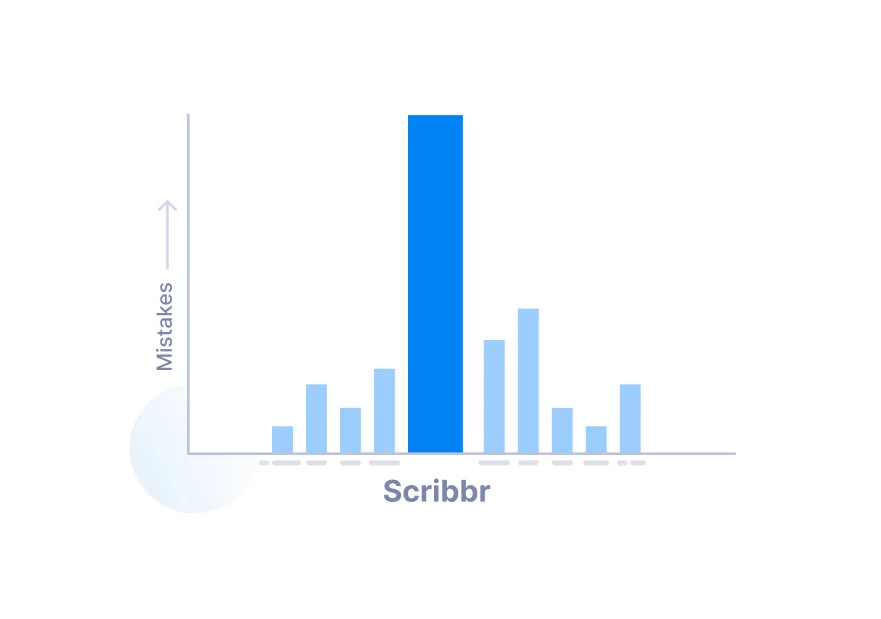
High accuracy
Trained on 1000s of academic documents, the AI Proofreader accurately catches academic writing mistakes.

Improve your grades
The AI proofreader makes your academic writing clear and easy to read, without any errors. This improves your writing and your grades.
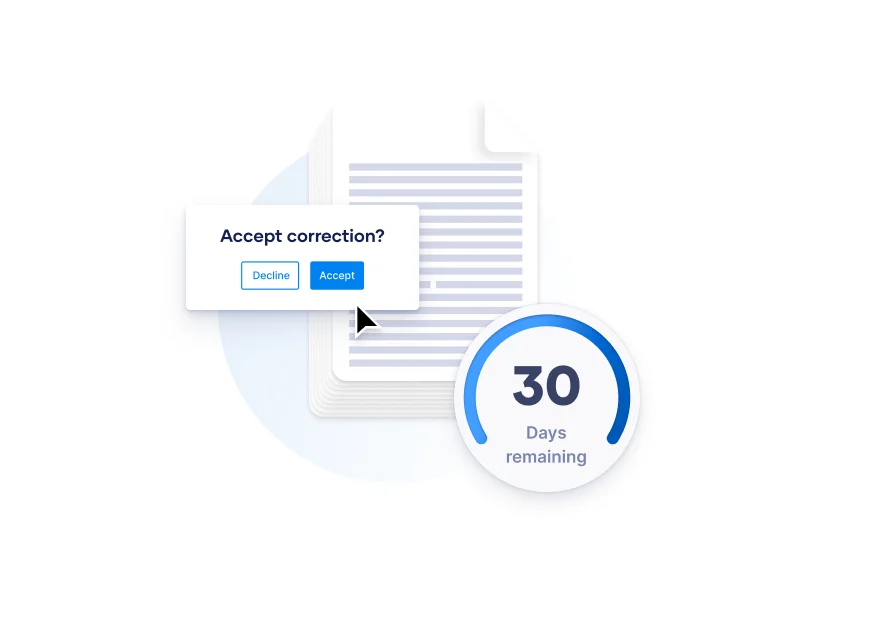
1-click corrections
Accept or reject any correction directly within your document. Upload as much drafts, chapters and assignments as you want for 30 days.
This is how we improve your document
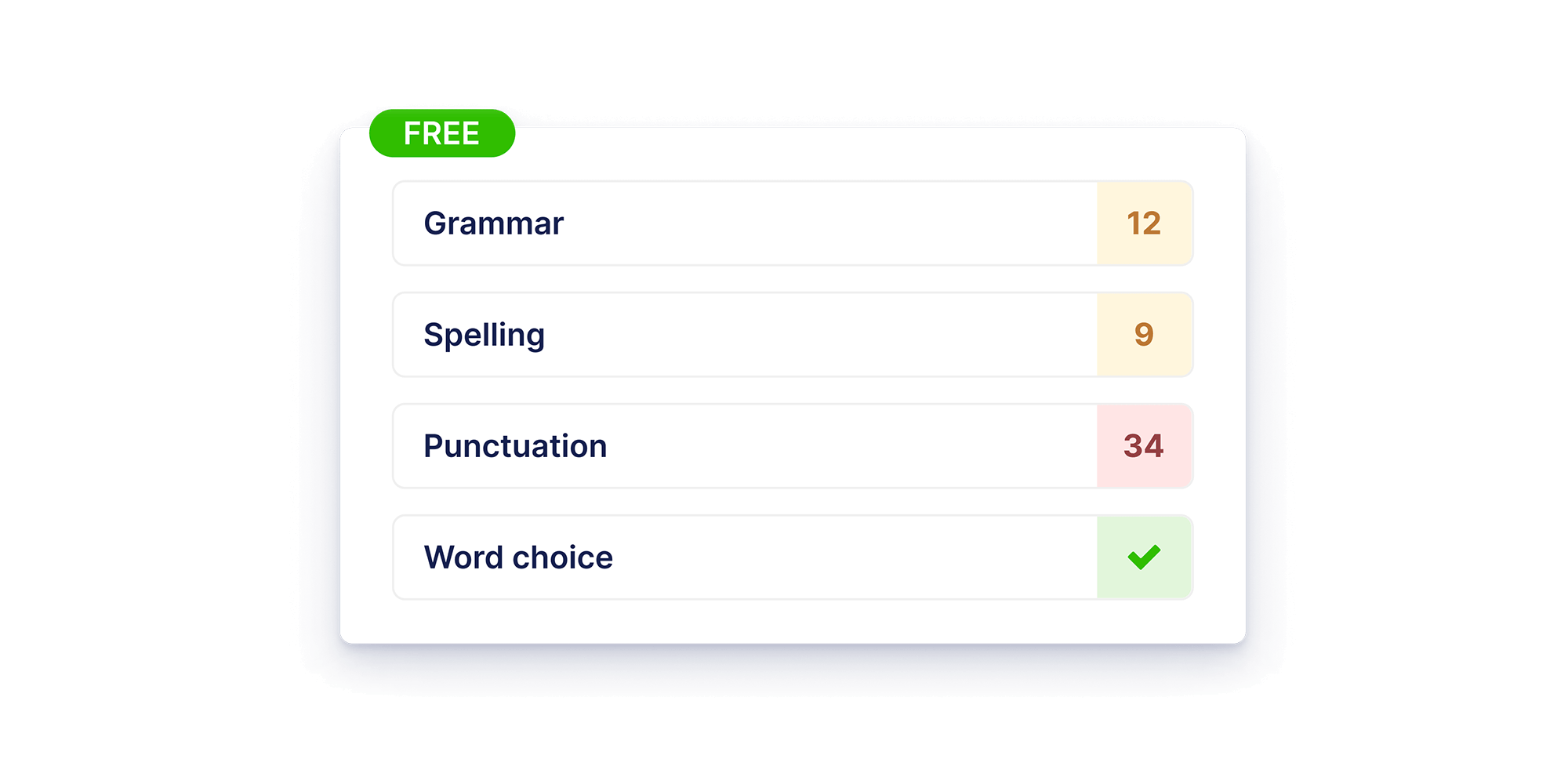
1. Upload & get free error assessment
The AI Proofreader scans for 100s of academic language errors. Within 5 minutes, a report will reveal your mistakes.

2. Review all corrections in detail by unlocking unlimited access
Unlock unlimited access to download your .docx with all the corrections. You can now submit unlimited documents for 30 days!
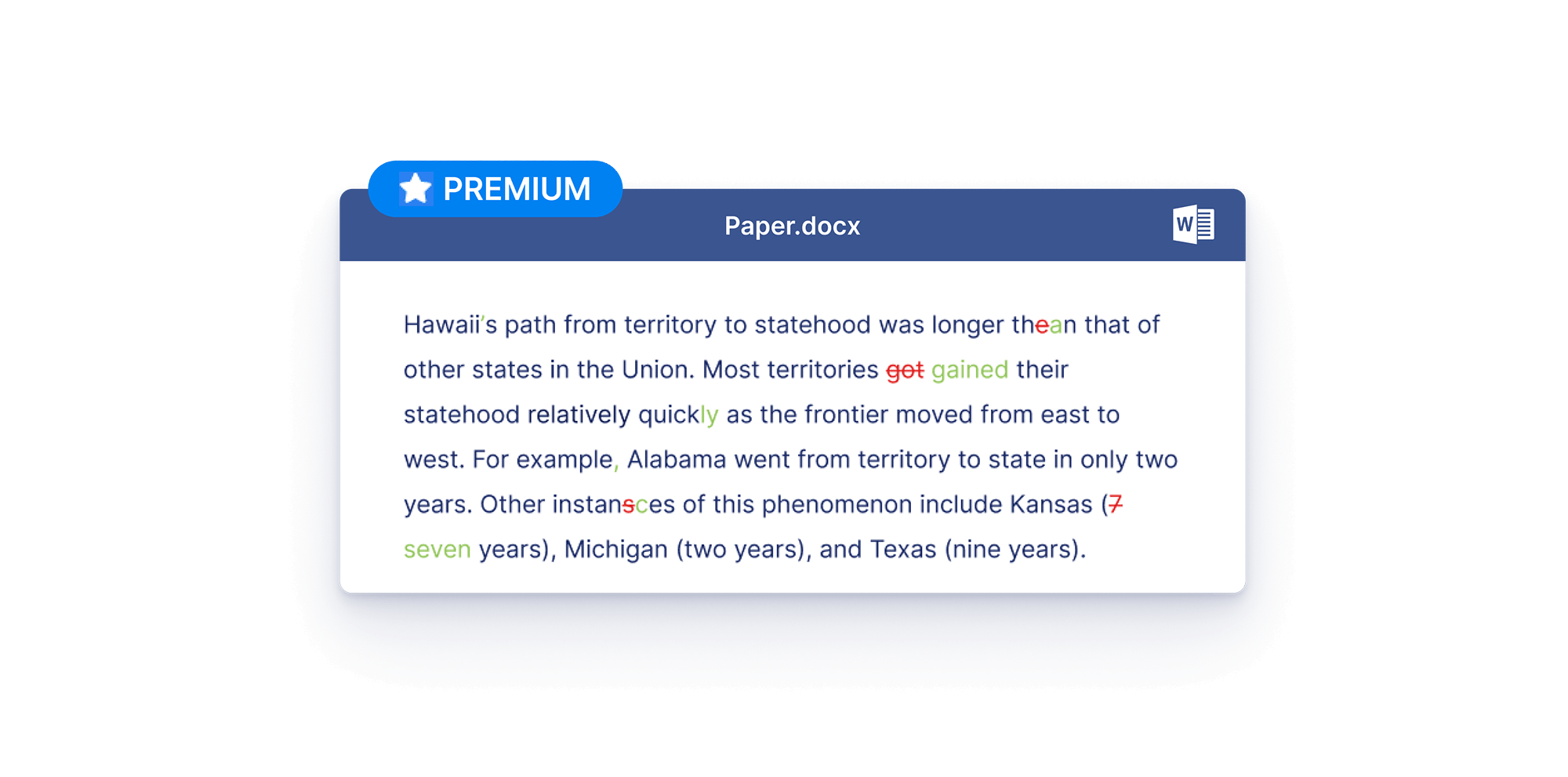
3. Download and review changes in your .docx
Download the .docx document to accept or reject the corrections inside your document. You can also accept all changes with one click.
High accuracy guaranteed
We created the AI Proofreader to correct academic texts. To achieve this, we trained it on 1000s of academic papers. That’s why it covers more advanced mistakes in academic writing. It also makes sure that your writing is clear and easy to understand.
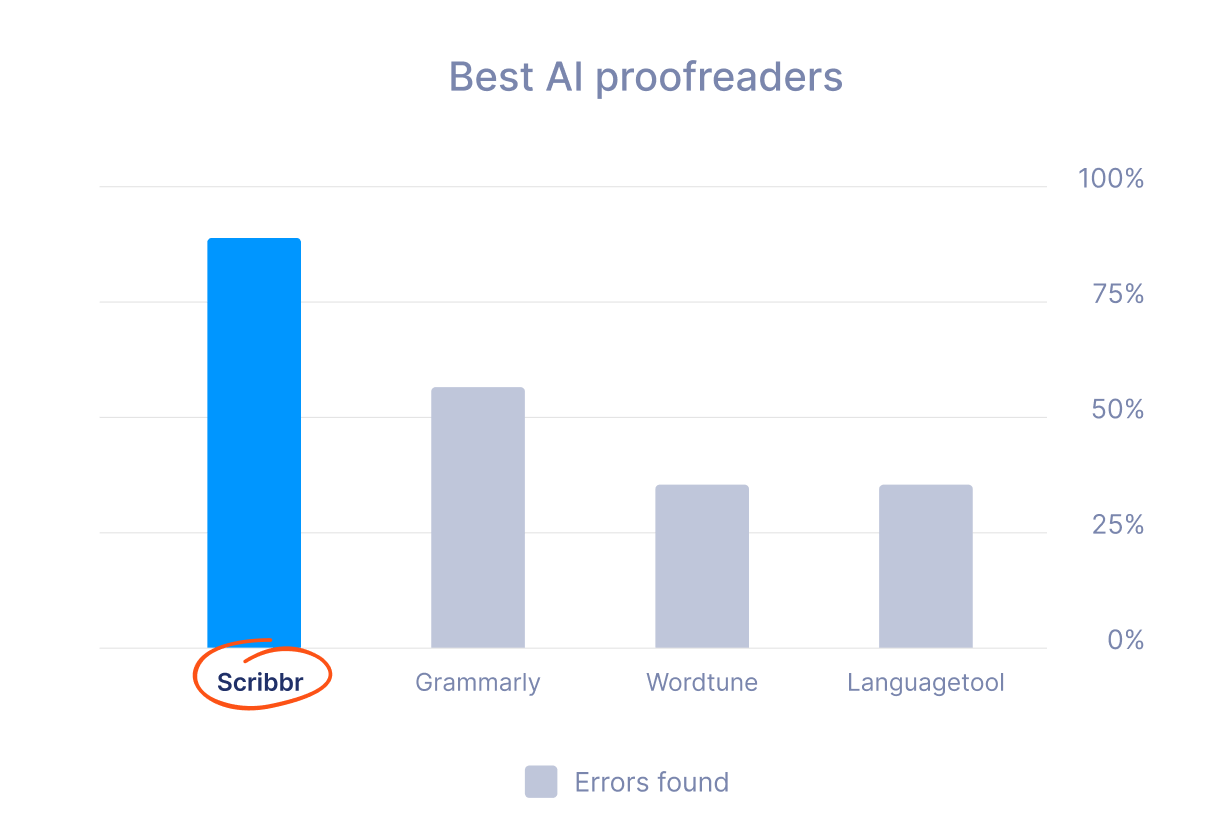
Privacy guarantee
Submissions don’t get added to our database. Your document gets deleted after it’s corrected.
12 years of experience
Scribbr has improved thousands of academic documents and published hundreds of helpful articles on writing.
100% satisfaction guarantee
If you’re not completely happy, let us know! Together, we’re guaranteed to find a solution that leaves you 100% satisfied.
Did you know that we’ve helped over 5,000,000 students graduate since 2012?
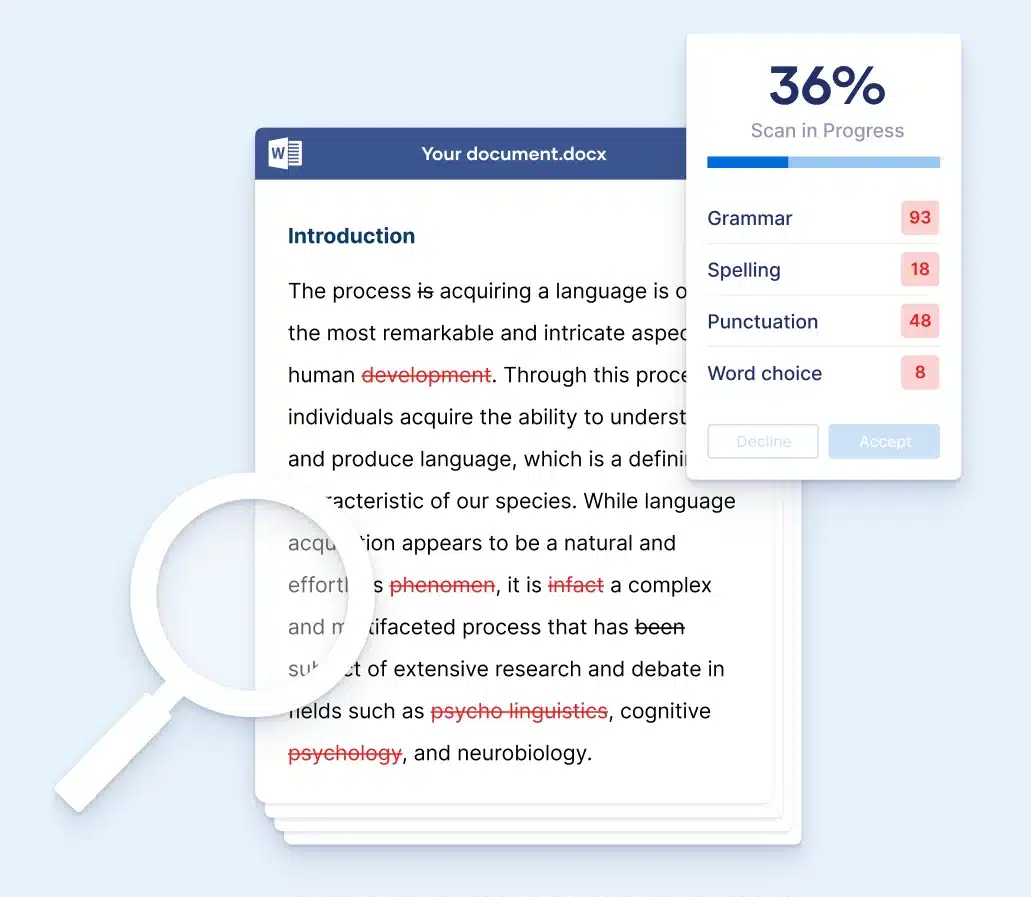
Always start with a free language scan
After uploading your document you get an overview of all writing issues. The scanner looks for grammar, spelling, punctuation, word choice & fluency errors in your document.
Scan my document for errors
I thought AI Proofreading was useless but..
“I’ve been using Scribbr for years now and I know it’s a service that won’t dissapoint. I want to seem professional and straight to the point when I submit my work. I’m happy with the correction. It does a good job spotting grammar mistakes”
Going beyond correcting your grammar

The Scribbr AI proofreader fixes grammatical errors like:
- Sentence fragments & run-on sentences
- Subject-verb agreement errors
- Issues with parallelism
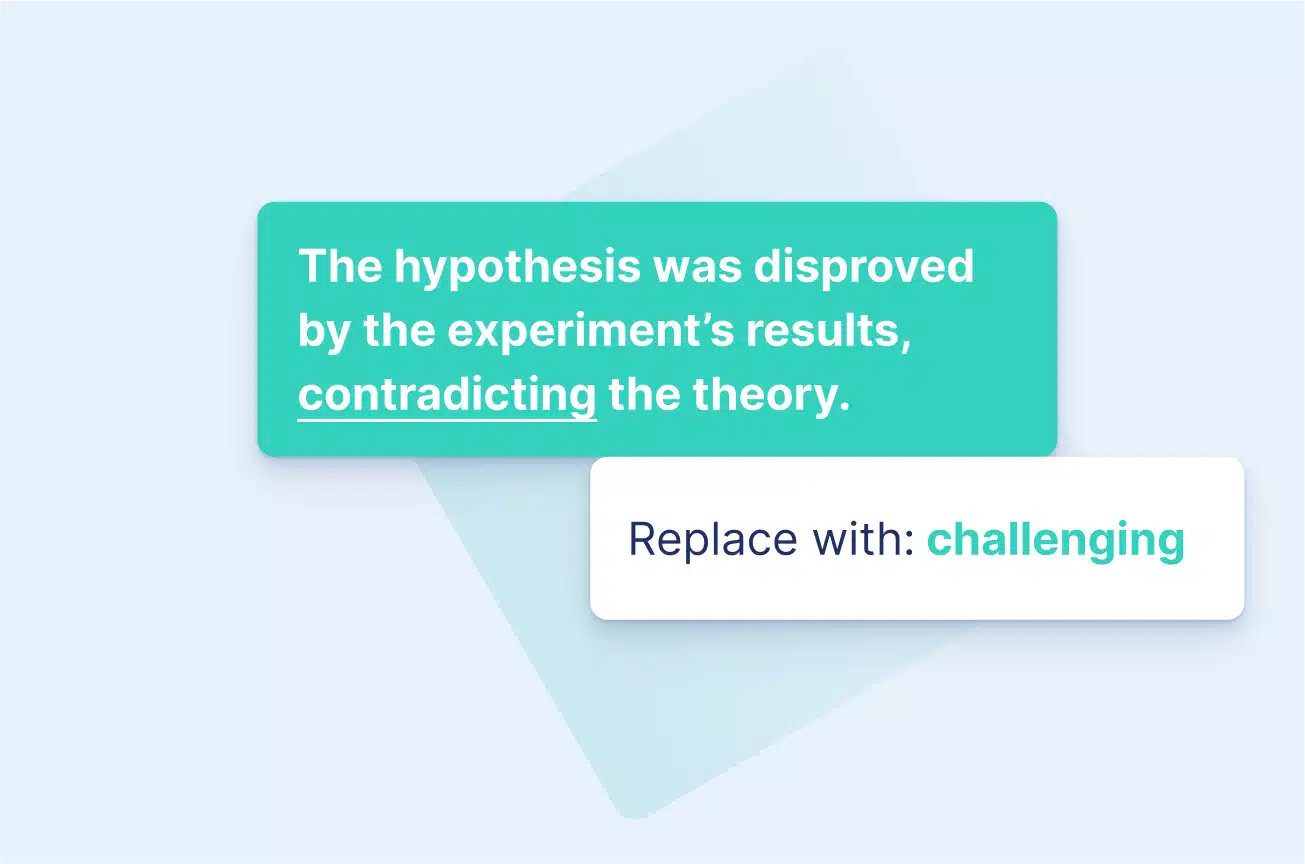
Basic spell-checks often miss academic terms in writing and mark them as errors. Scribbr has a large dictionary of recognized (academic) words, so you can feel confident every word is 100% correct.
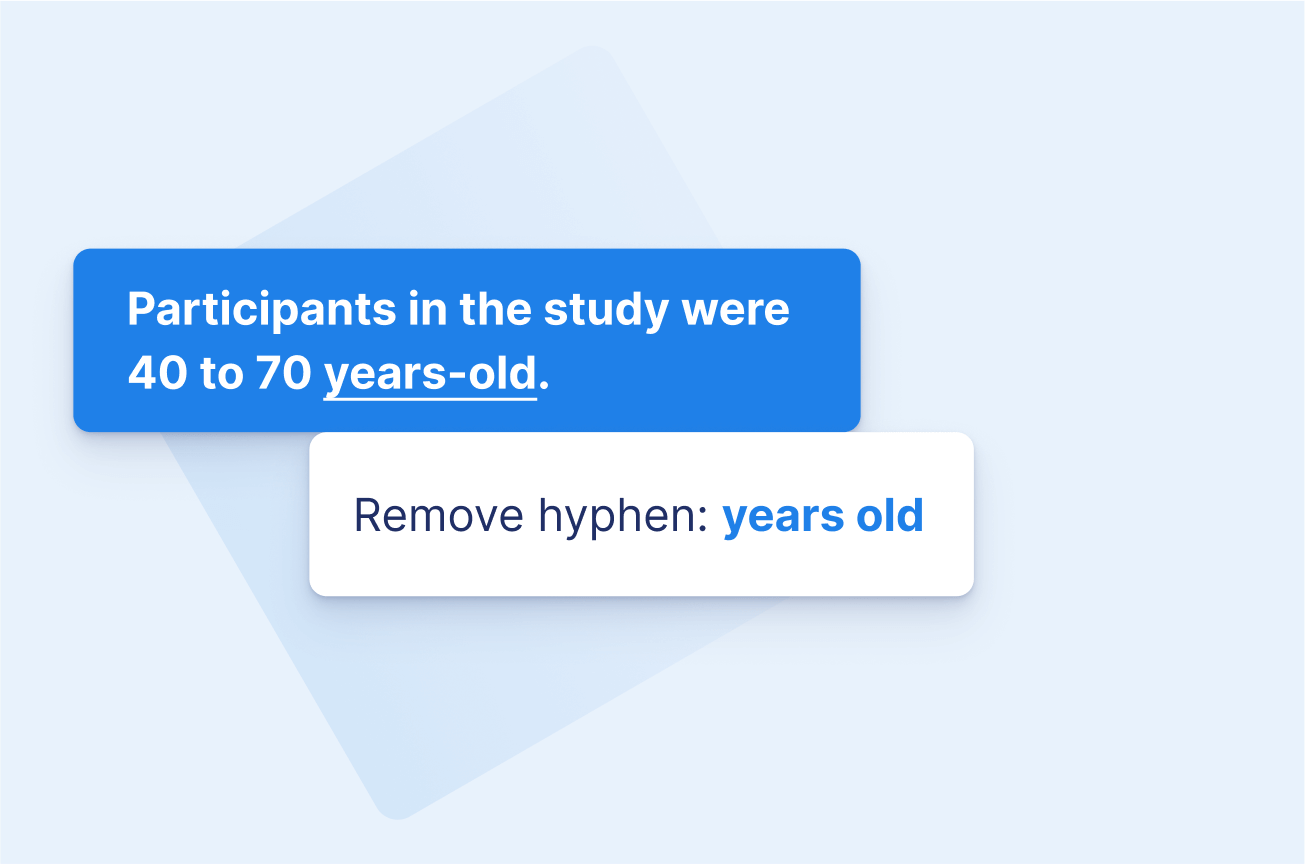
Punctuation
The AI Proofreader takes away all your punctuation worries. Avoid common mistakes with:
- Apostrophes
- Parentheses
- Question marks
- Colons and semicolons
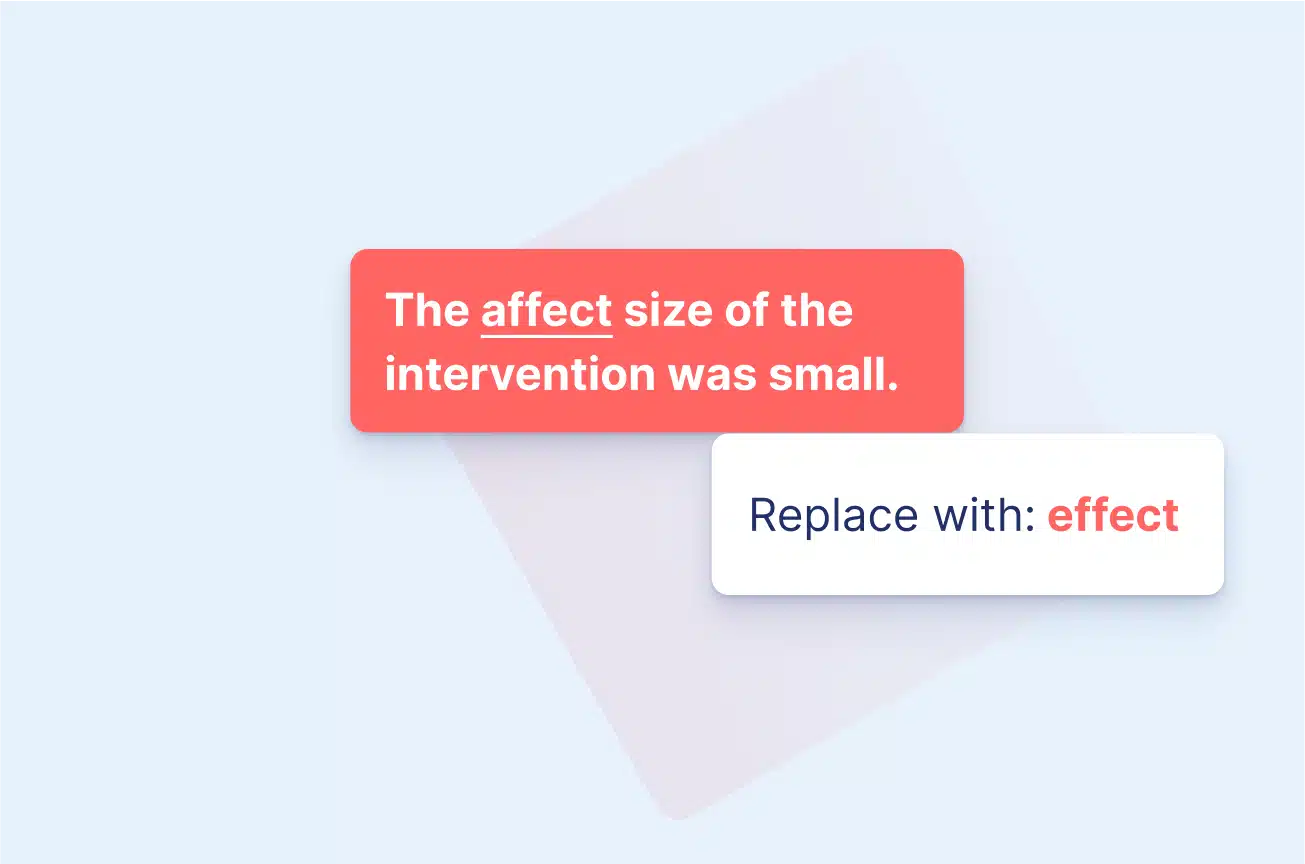
Wrong word choice
Fix problems with commonly confused words, like affect vs. effect, which vs. that and who vs. that.
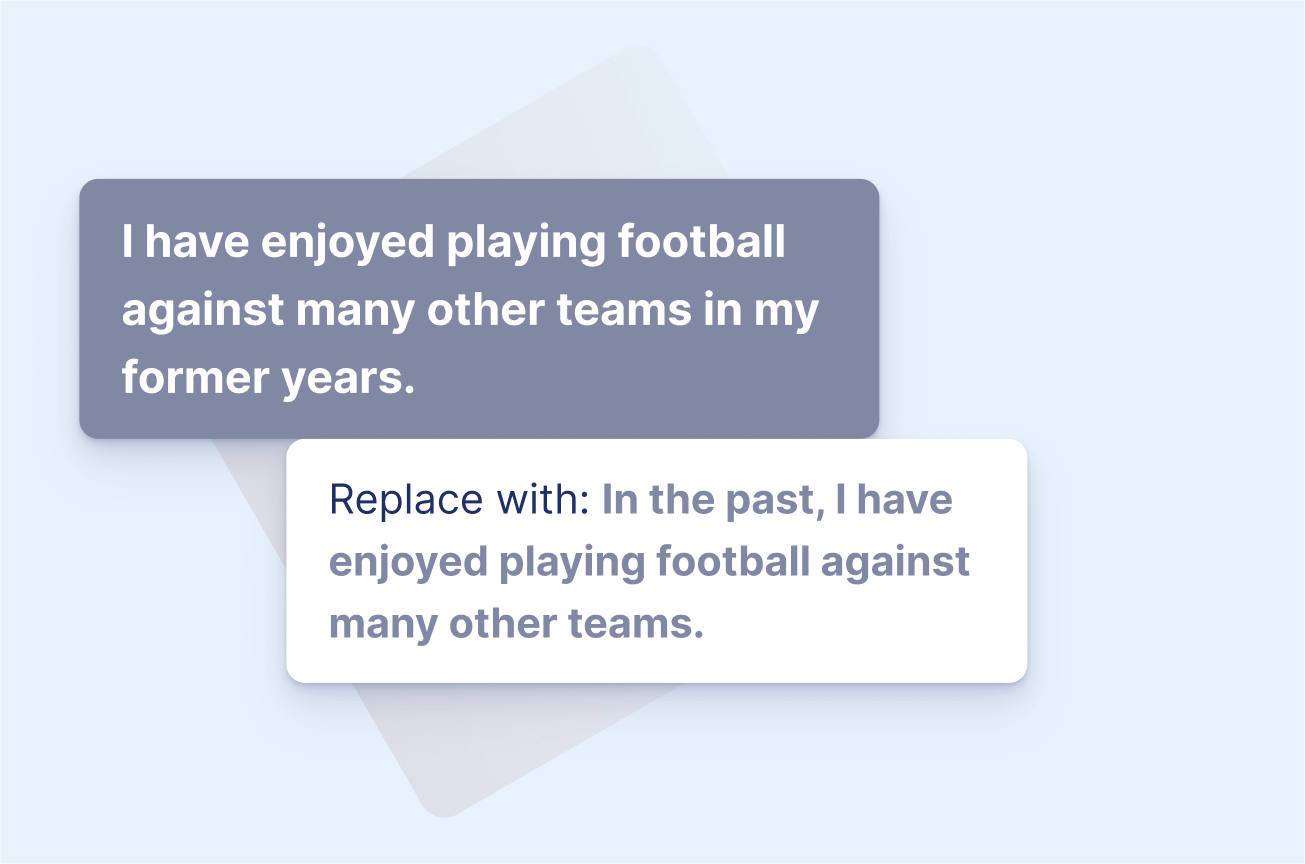
The proofreader suggests fluency corrections to make your writing easier to read.
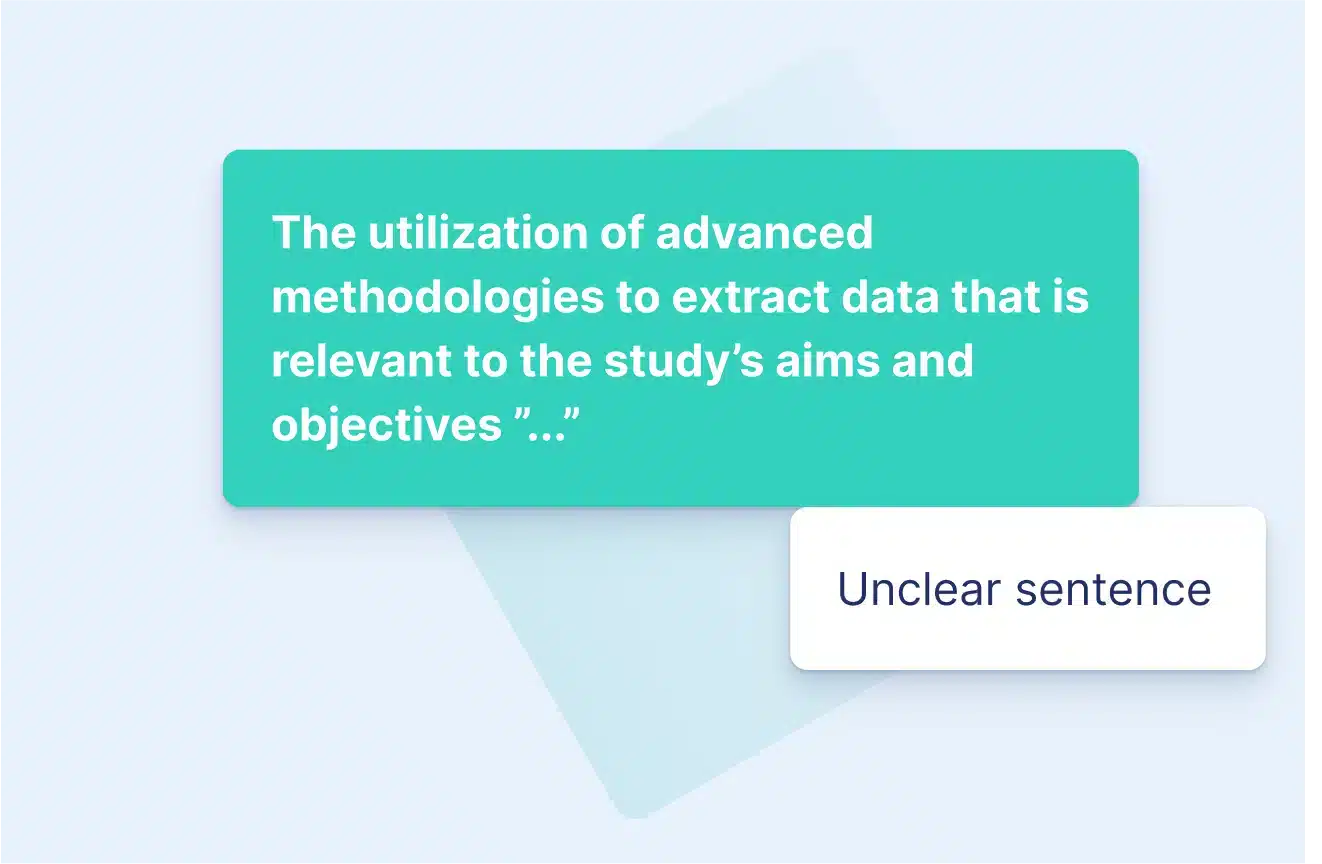
Unclear sentences
Long, complex sentences can make your writing hard to read. The AI Proofreader makes sure you express your ideas clearly.
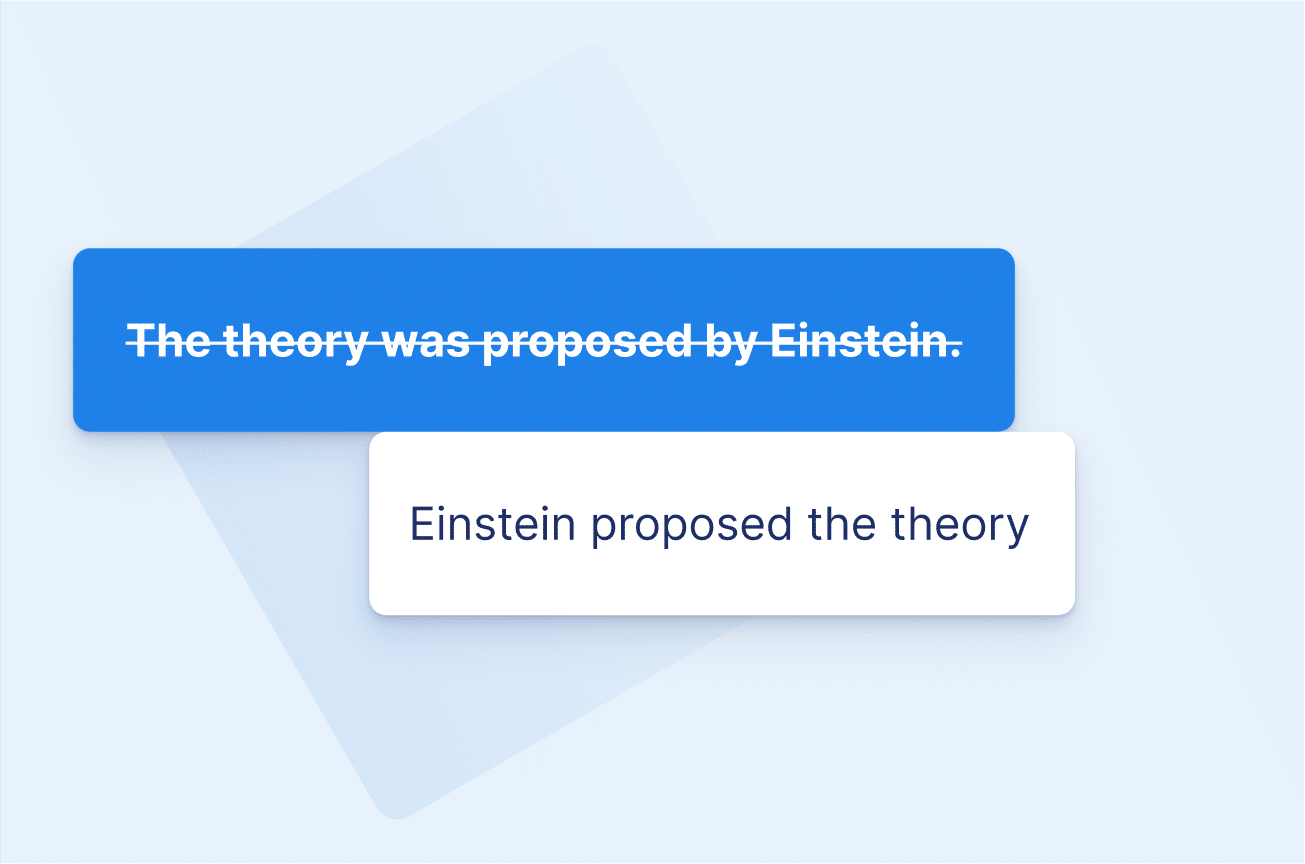
Passive voice
Active voice makes your sentences clear and concise. The AI proofreader reduces the overuse of passive voice in your text.
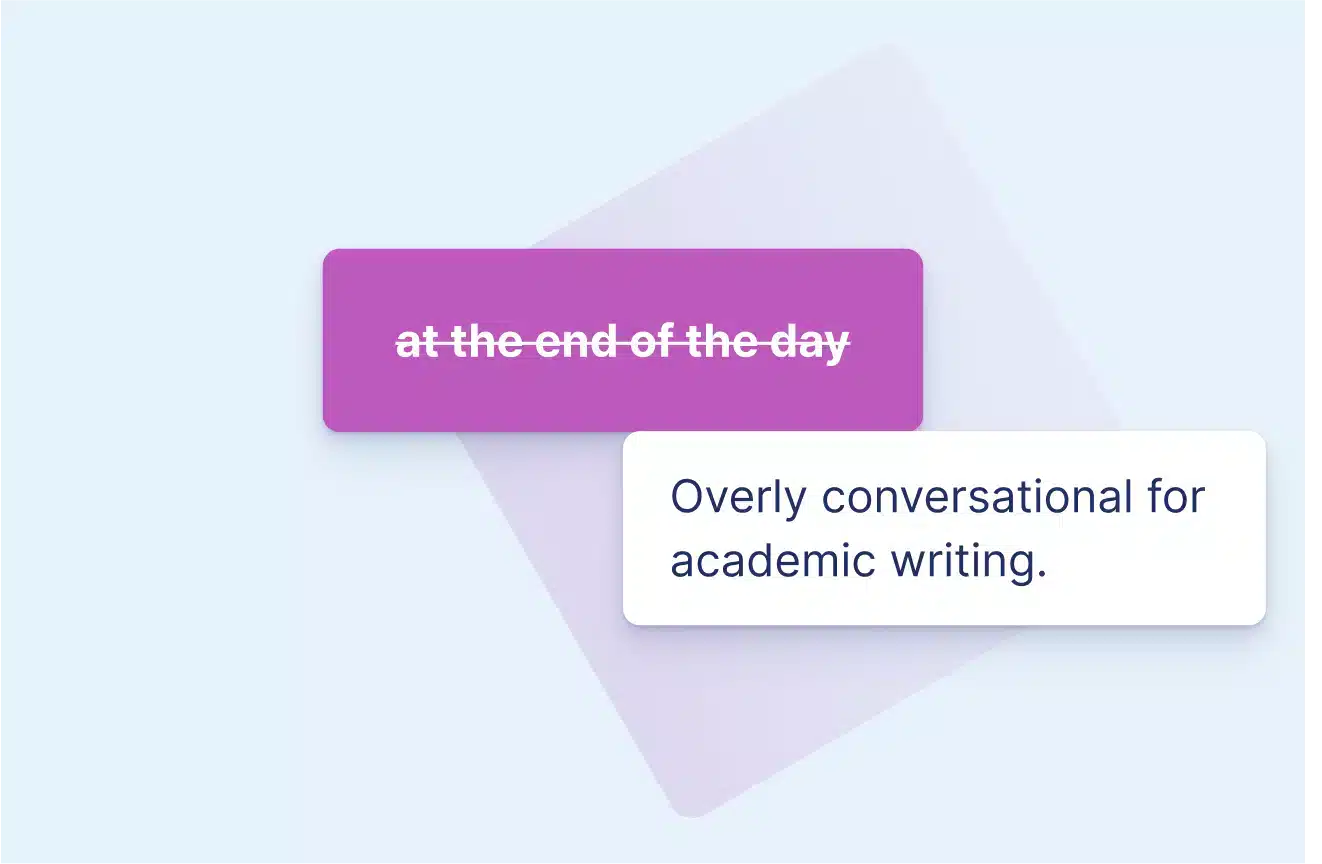
Overused expressions
Clichés can make your writing seem lazy and predictable. Eliminating them will make your text more engaging and compelling.
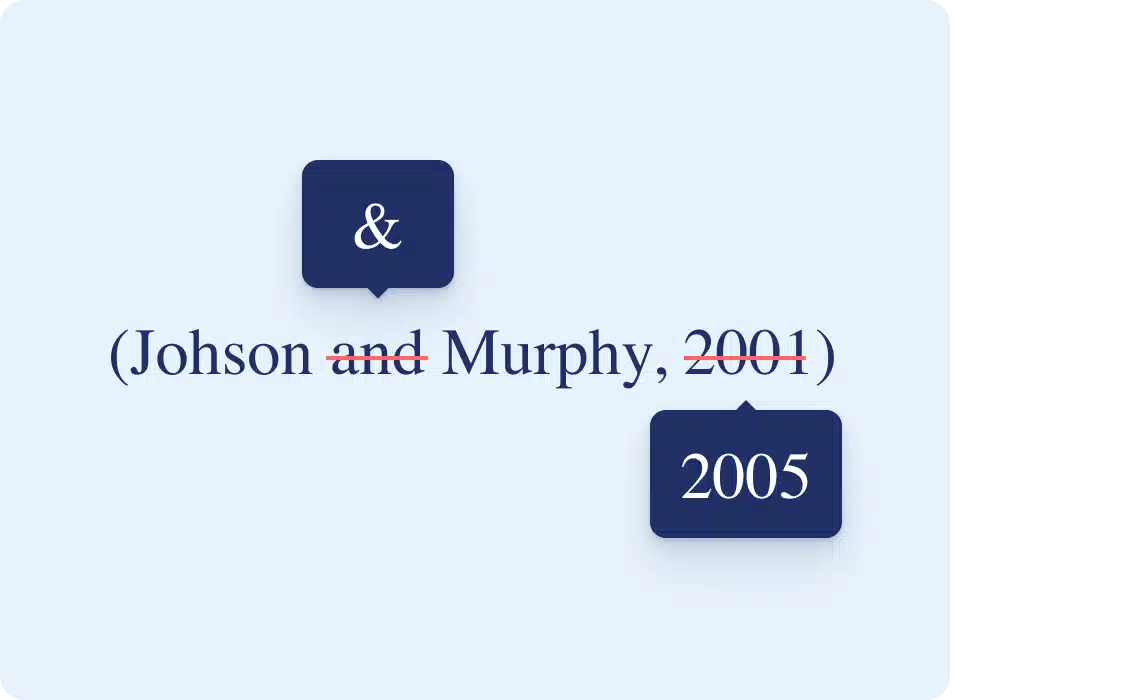
Value: $9.95
Free bonus feature: citation checker.
Get your citations checked on all APA guidelines. You’ll receive an interactive report highlighting all errors and an outline of their solutions. Normally $9.95, now included with the AI Proofreader for free.
Find out if your writing is submit-ready
Ask our team.
Want to contact us directly? No problem. We are always here for you.
- Email [email protected]
- Start live chat
- Call +1 (510) 822-8066
- WhatsApp +31 20 261 6040

Frequently asked questions
Our AI Proofreader has been trained on academic texts. It also addresses commonly confused words, and it’s more accurate than Word’s autocorrect feature. Word’s autocorrect feature usually operates on a word level, whereas our AI Proofreader can proofread on the sentence and, to an extent, even the paragraph level. Because it’s more accurate and fixes more than just grammar mistakes, our AI Proofreader identifies and corrects more mistakes overall. Furthermore, because you check your document with our AI Proofreader after you’ve finished writing it, your workflow won’t be interrupted.
Rest assured: Your documents are safe. The document you upload is deleted immediately after it’s been processed by our AI Proofreader, and your processed document will automatically be deleted from our servers after 12 months. If you’d like to delete the stored copy of your document sooner, you can do so manually through your user profile at any time. For more information, please consult our articles on how we ensure the security of your documents.
For now, the AI Proofreader only corrects based on the conventions of US English. We will add other dialects at a later stage.
You can only upload .docx (Word) files to the AI Proofreader.
Absolutely! The AI Proofreader is particularly useful for non-native English speakers, as it can detect mistakes that may have gone unnoticed.
There’s no need for any downloads! You can use our AI Proofreader right in your web browser. Just upload your document and sit back; you’ll receive a revised version of your document within 10 minutes.
No; the AI Proofreader currently focuses on grammar, spelling, and punctuation errors. If you’re interested in detecting any potential plagiarism in a document, we recommend that you consider our Plagiarism Checker . The AI Proofreader is included for free in that service.
Absolutely! Every change suggested by the AI Proofreader is indicated as a tracked change in Word. You can decide which changes to accept or reject in your document, and, if you’re feeling confident, you can even accept all of the changes with just one click.
The cost is $9.95 per document, no matter the length. You won’t pay more based on the number of words or characters. Our AI Proofreader is ideal for academic papers and dissertations!
The exact time depends on the length of your document, but, in most cases, the proofreading will be completed within a maximum of 10 minutes.
No.To make sure that your reference list isn’t disrupted, we’ve implemented suppression rules in our model.
No. You can, however, get a free report that tells you exactly how many and what kinds of mistakes there are in your document.

COMMENTS
Accuracy in writing goes beyond mere facts and figures-it can also help engage readers by asking pertinent questions that prompt reflection or create dialogue amongst peers. Conclusion. Accuracy in writing examples is crucial to communicating effectively and projecting a professional image. By learning the components of accuracy, practicing ...
According to ThoughtCo, "accuracy is how close a value is to its true value.". This can often be confused with precision (discussed previously as another distinguishing factor of academic writing) which measures repeatability. West Sound Academic Library defines accuracy as "the reliability, truthfulness and correctness of the content ...
According to the Publication Manual of the American Psychological Association (APA, 2020), academic writing should be concise and clear, and using words frugally creates a more readable paper. APA states, "Some writers may fear that writing concisely will make their papers too short However, adding extraneous material or 'fluff' to make your paper longer will dilute its focus and meaning ...
In an essay, you demonstrate your understanding of the course material by discussing a topic related to the coursework. Be sure to budget a sufficient amount of time to write and edit each essay you're assigned, especially if you're taking a full course load. As a full-time student taking four or five courses, you can expect to write two to ...
Harvard College Writing Center 5 Asking Analytical Questions When you write an essay for a course you are taking, you are being asked not only to create a product (the essay) but, more importantly, to go through a process of thinking more deeply about a question or problem related to the course. By writing about a
Table of contents. Step 1: Prewriting. Step 2: Planning and outlining. Step 3: Writing a first draft. Step 4: Redrafting and revising. Step 5: Editing and proofreading. Other interesting articles. Frequently asked questions about the writing process.
To develop clear thinking around a complex topic, it's best to (free)write repeatedly on this topic. Such regular think-writing practice can be incorporated into your daily work routines in form of a lab book or research journal. II. Revise for precision. The biggest mistake you can make when striving for precision in (scientific) writing is ...
Rely on the most accurate free essay checker available. Improve your writing by correcting grammar, spelling, punctuation and word choice. FAQ About us . Our editors ... Corrections directly in your essay; Upload my essay Your writing stays private. Correct your entire essay in 5 minutes. Proofread my document.
Schmieder noted, "Precision allows readers to clearly follow your methodology and argument. It adds to credibility and perception of accuracy and validity of your claim. It also improves the likelihood that readers will understand your research and findings.". Even when writing for an informed audience, as is often the case with a thesis or ...
Currently, no web standards exist to ensure accuracy. Indicators that peer-reviewed journal articles from databases like Academic OneFile, EBSCO, JSTOR, and ScienceDirect will be accurate: Written by college and university scholars - professors, graduate students, and post-doctoral fellows. Published in scholarly journals that each have there ...
"Writing" is usually understood as the expression of thought. This book redefines "writing" as the thought process itself. Writing is not what you do with thought. Writing is thinking. Better living through interpretation: that's the promise of academic writing, which is a foundational course in most schools because it's a
The Online Writing Lab (the Purdue OWL) at Purdue University houses writing resources and instructional material, and we provide these as a free service at Purdue. Students, members of the community, and users worldwide will find information to assist with many writing projects. Teachers and trainers may use this material for in-class and out ...
Cultivate accuracy in your writing. Accuracy, which is the careful conforming to truth or fact, has three main aspects: Document accuracy refers to the proper coverage of your topics in appropriate detail. Often an accurate document needs to focus clearly on a problem. Document accuracy is generally cultivated by a clear problem statement and ...
Here are some strategies for developing your own written communication: 1. Review grammar and spelling basics. Grammar and spelling form the foundation of good writing. Writing with proper grammar and spelling communicates your professionality and attention to detail to your reader. It also makes your writing easier to understand.
Essay writing process. The writing process of preparation, writing, and revisions applies to every essay or paper, but the time and effort spent on each stage depends on the type of essay.. For example, if you've been assigned a five-paragraph expository essay for a high school class, you'll probably spend the most time on the writing stage; for a college-level argumentative essay, on the ...
3. Misplaced and Dangling Modifiers. Place modifiers near the words they describe; be sure the modified words actually appear in the sentence. Incorrect: When writing a proposal, an original task is set for research. Revised: When writing a proposal, a scholar sets an original task for research. Incorrect: Many tourists visit Arlington National Cemetery, where veterans and military personnel ...
The term accuracy not only means checking that the text is factually and grammatically correct, but also that the text confirms to all the style guidelines. Four steps should be kept in mind while ensuring that accuracy is maintained in professional writing: Double check the facts. The most important point to remember is that what ever you ...
Initially students should review their own piece of writing. Then the focus can shift towards improving accuracy. It may be that students begin to organize their ideas, deciding which ones to use and how to link them together. This is a form of accuracy work, focusing on organization, layout and structuring.
Why Accuracy in Writing Is Important. Last week I experienced the importance of accuracy. With anticipation I opened an article submission. The topic was relevant and novel. My excitement, however, waned as I read his opening sentence. The author stated the earth's population was 6.2 million. I thought there are over seven billion people on ...
Whether we're proofreading and editing, checking for plagiarism or AI content, generating citations, or writing useful Knowledge Base articles, our aim is to support students on their journey to become better academic writers. We believe that every student should have the right tools for academic success.
and mechanical accuracy and essay quality. Thus, in this study, we examine a corpus of essays written by students who were provided instruction in W-Pal. The essays were scored by expert raters for overall essay quality as well as grammatical and mechanical accuracy. The essays were also coded for grammatical
Learn how to write an effective five-paragraph essay using three easy formulas: the magic of three, thesis statement creation, and the 1-3-1 outline. ... " The human transcribers at GoTranscript returned nearly 100% accurate transcriptions in a couple of days and didn't balk at recordings featuring heavy accents. " By Signe Brewster. June ...
Arizona's state treasurer Kimberly Yee is kicking it off with an essay competition asking students to write about their dream jobs. Twenty winners from all across Arizona will get $529 for their ...
High accuracy guaranteed. We created the AI Proofreader to correct academic texts. To achieve this, we trained it on 1000s of academic papers. That's why it covers more advanced mistakes in academic writing. It also makes sure that your writing is clear and easy to understand.
The 2024 presidential campaign's home stretch kicks off with a mixed outlook across six key battlegrounds, according to new CNN polls conducted by SSRS in each state. Vice President Kamala ...